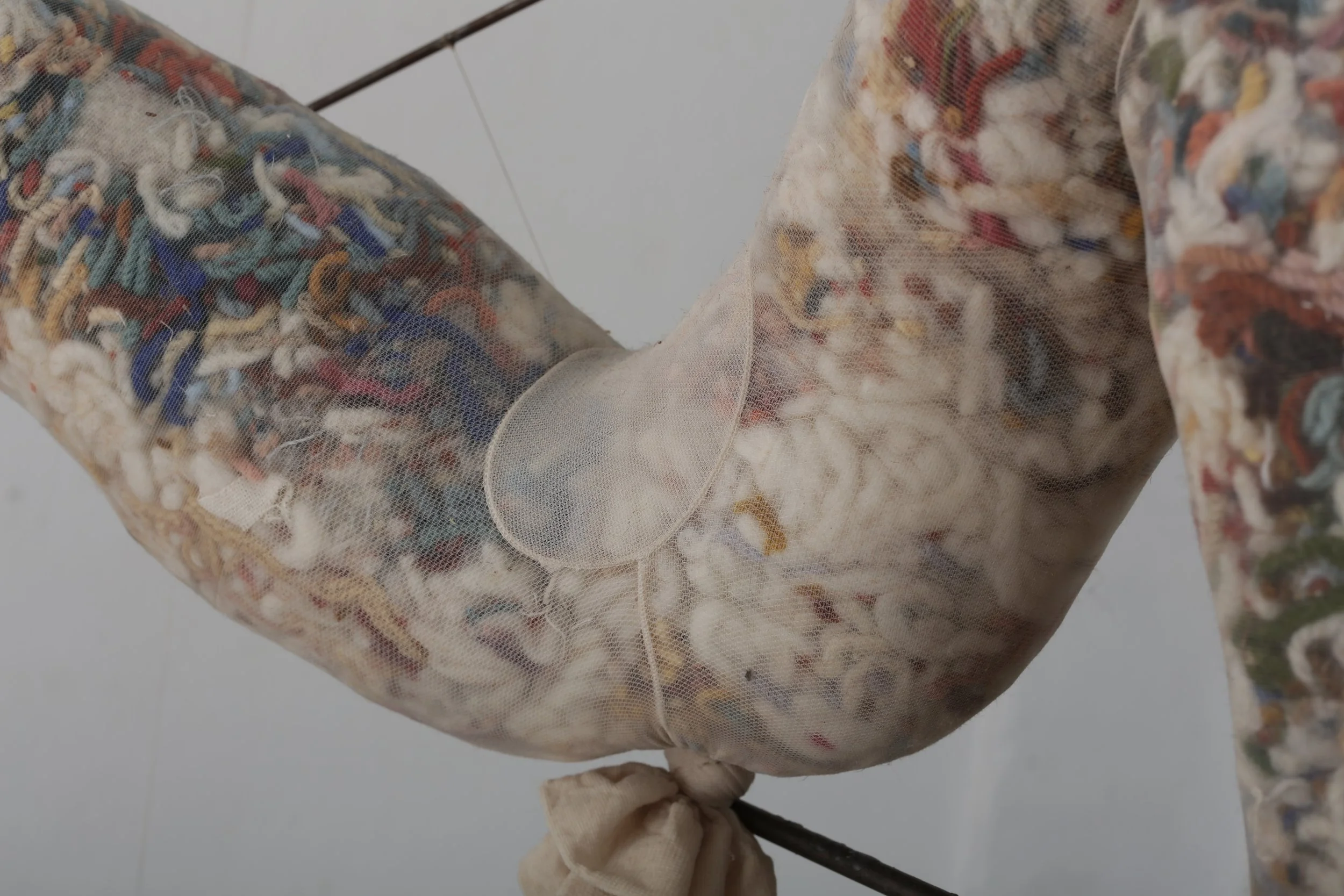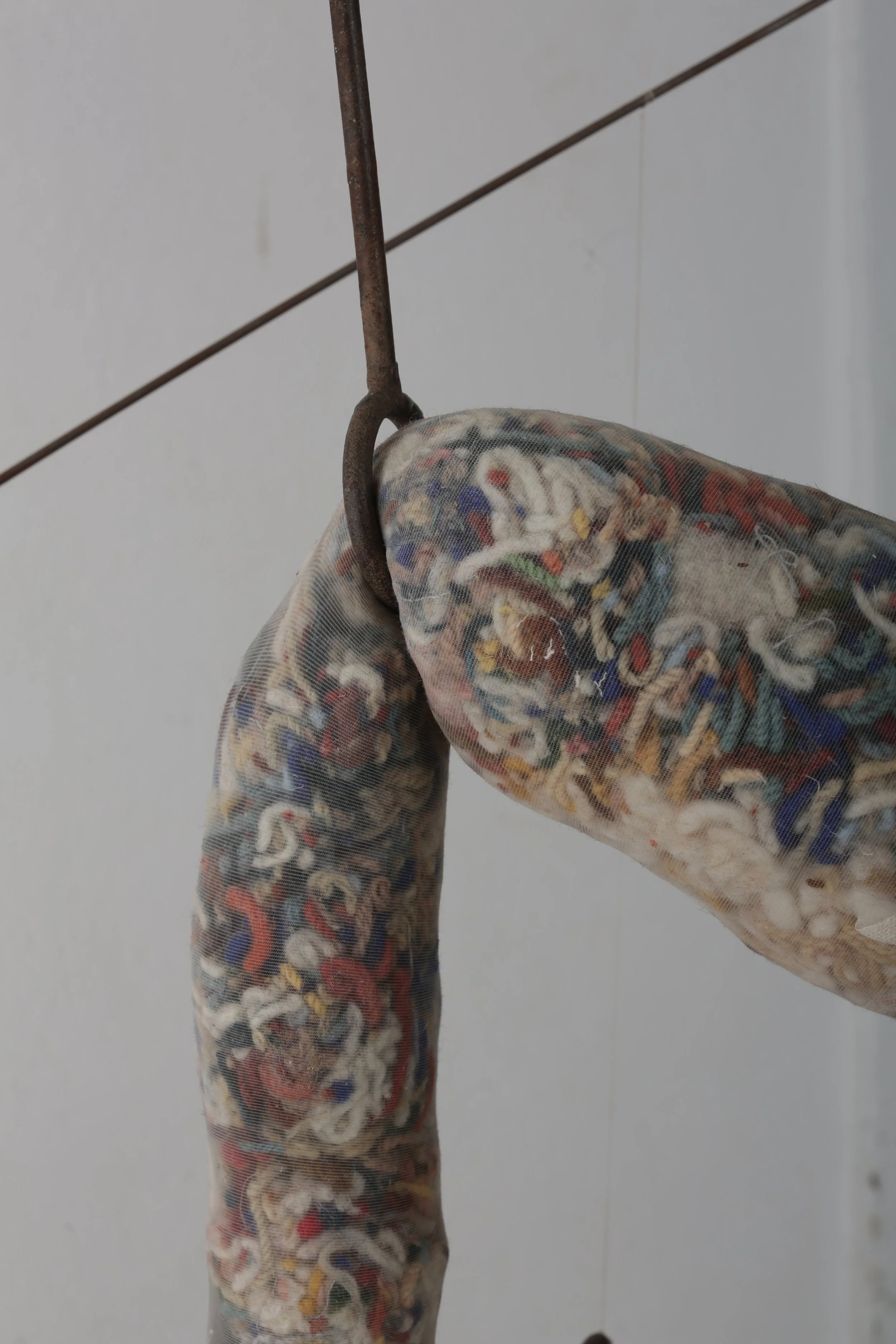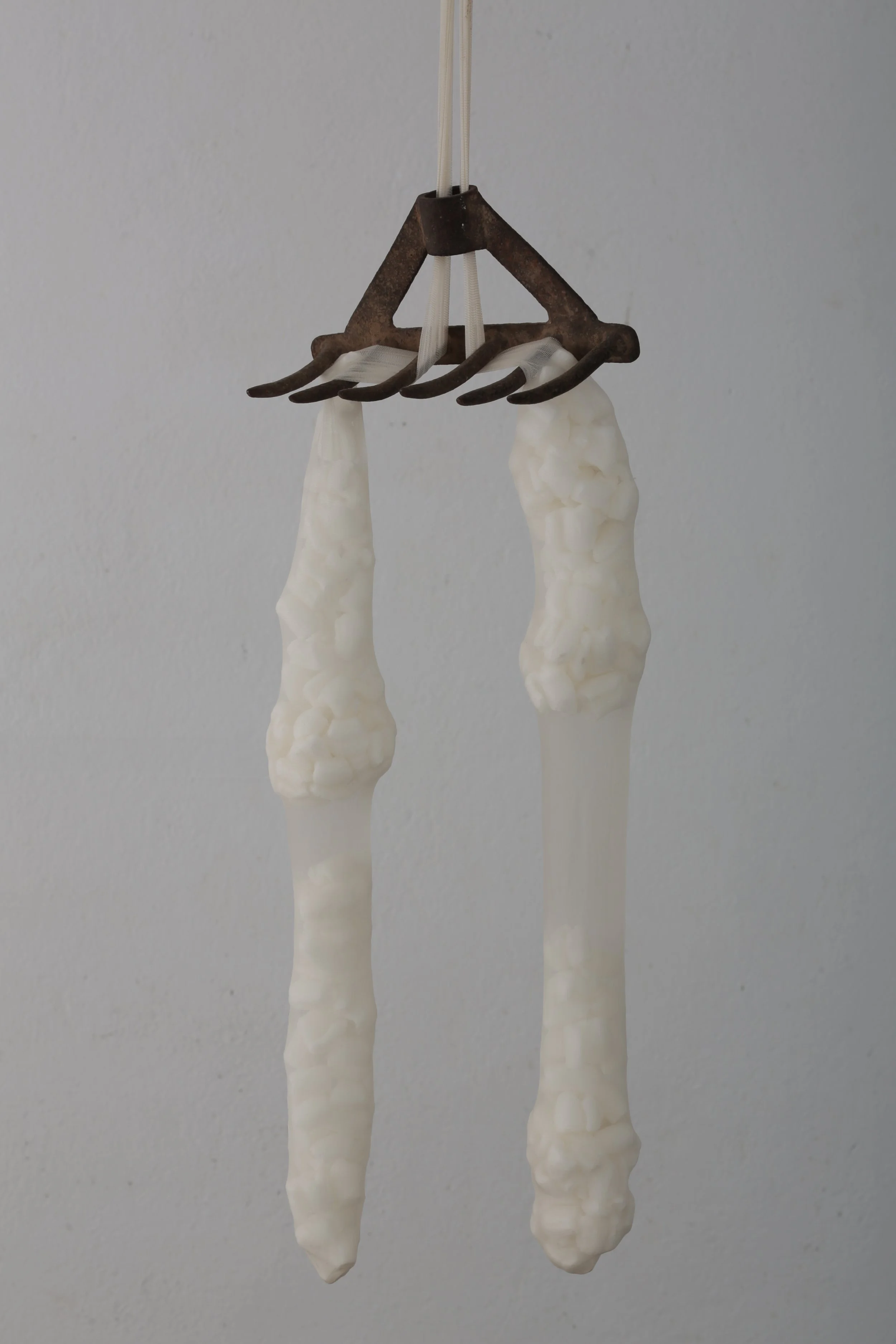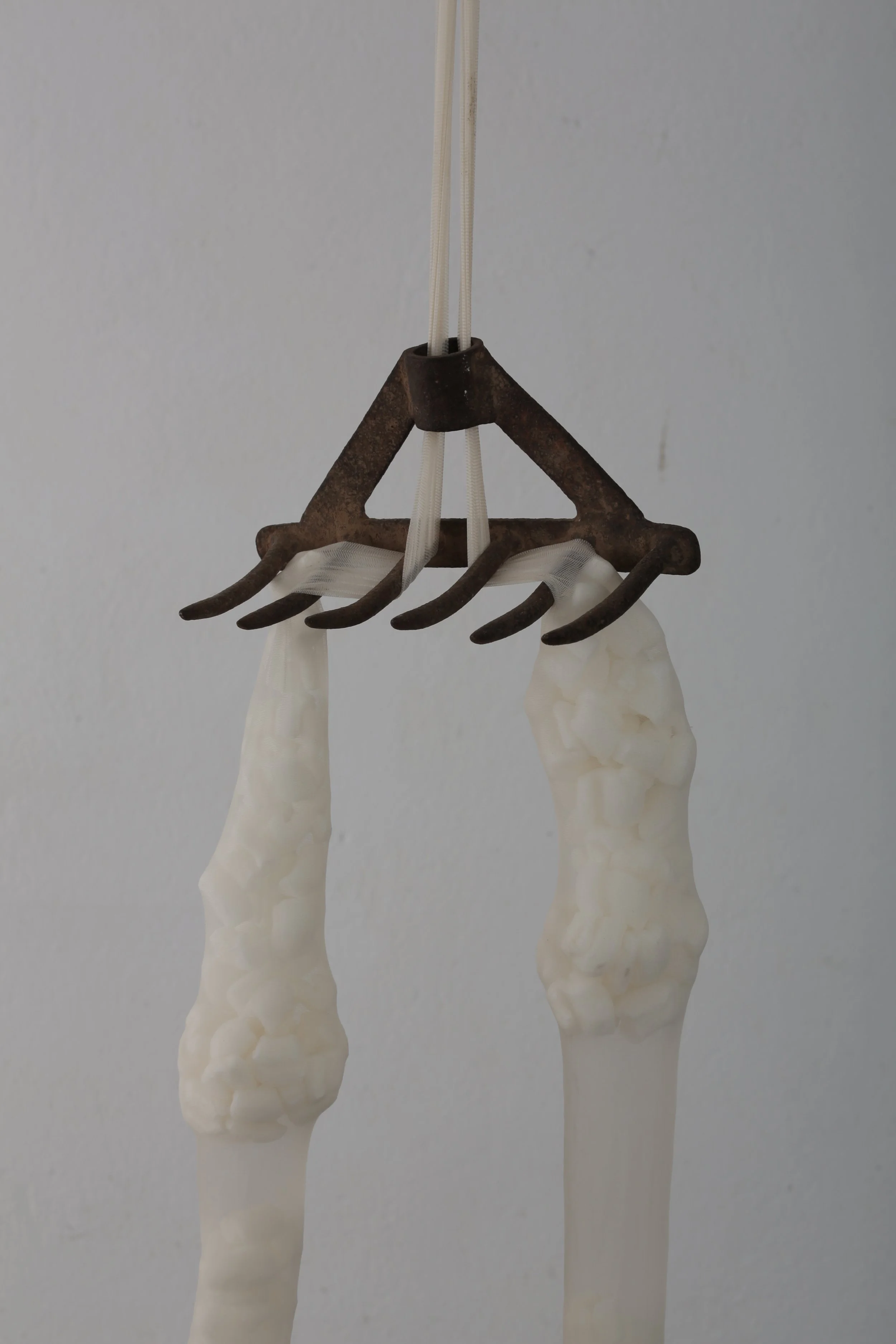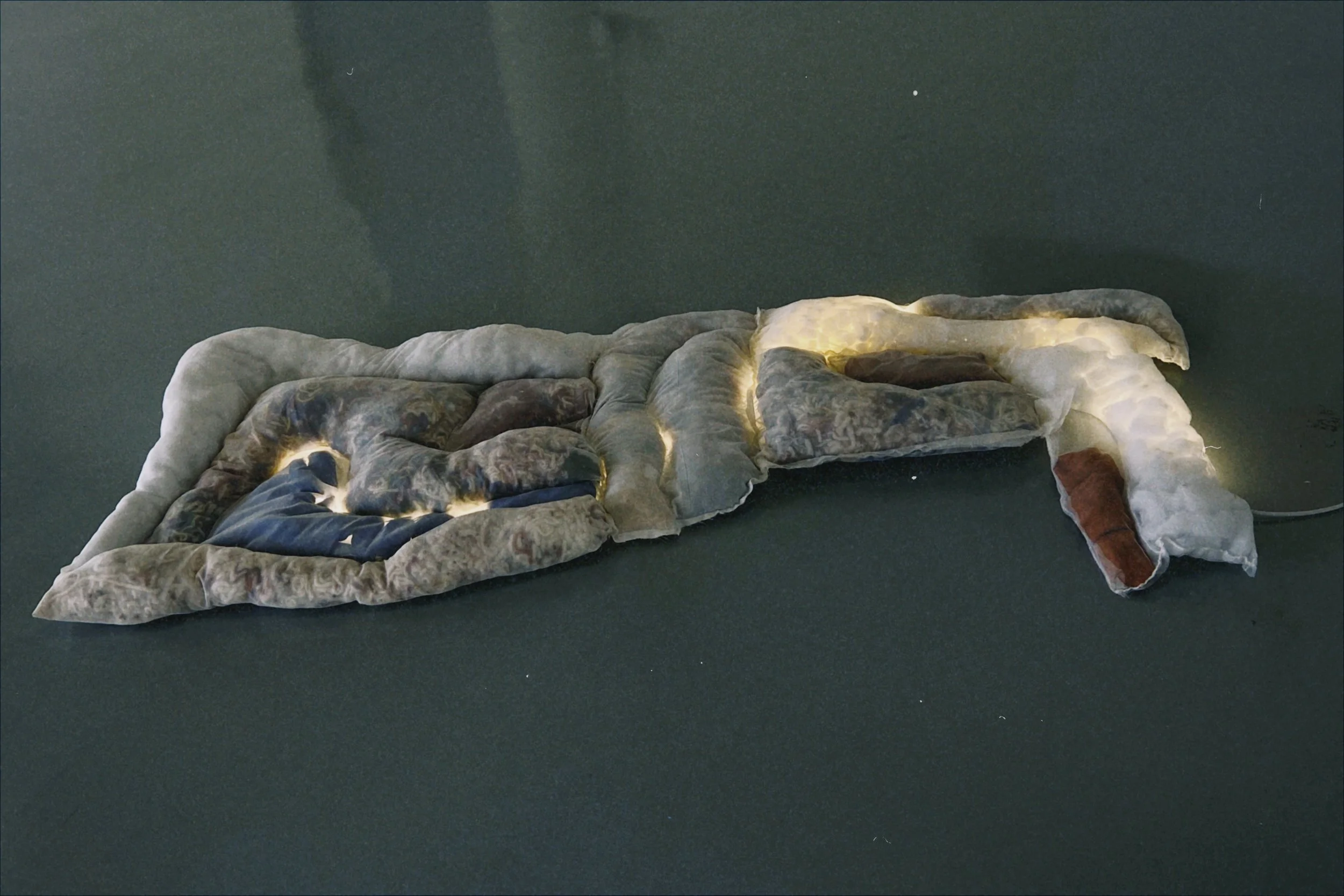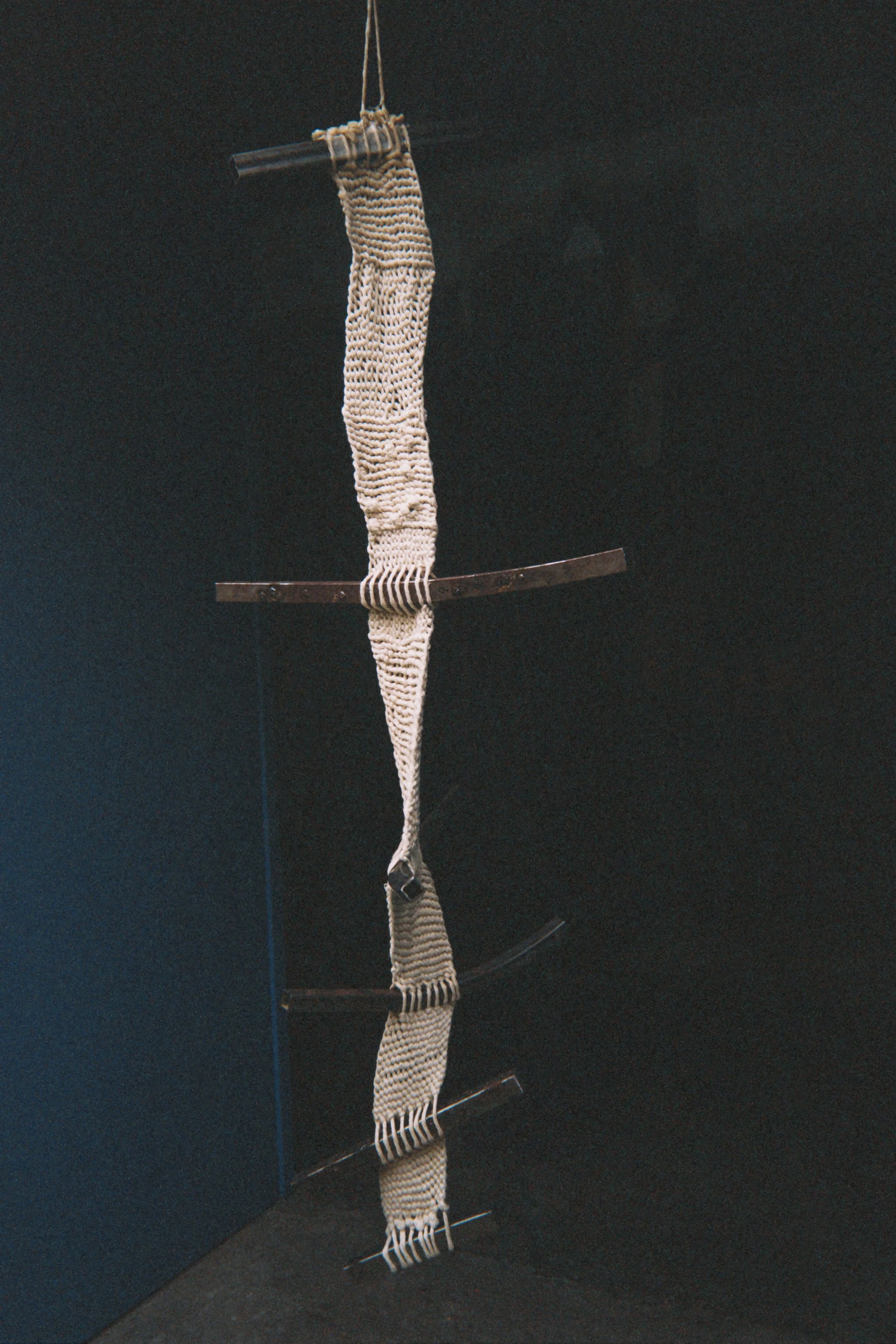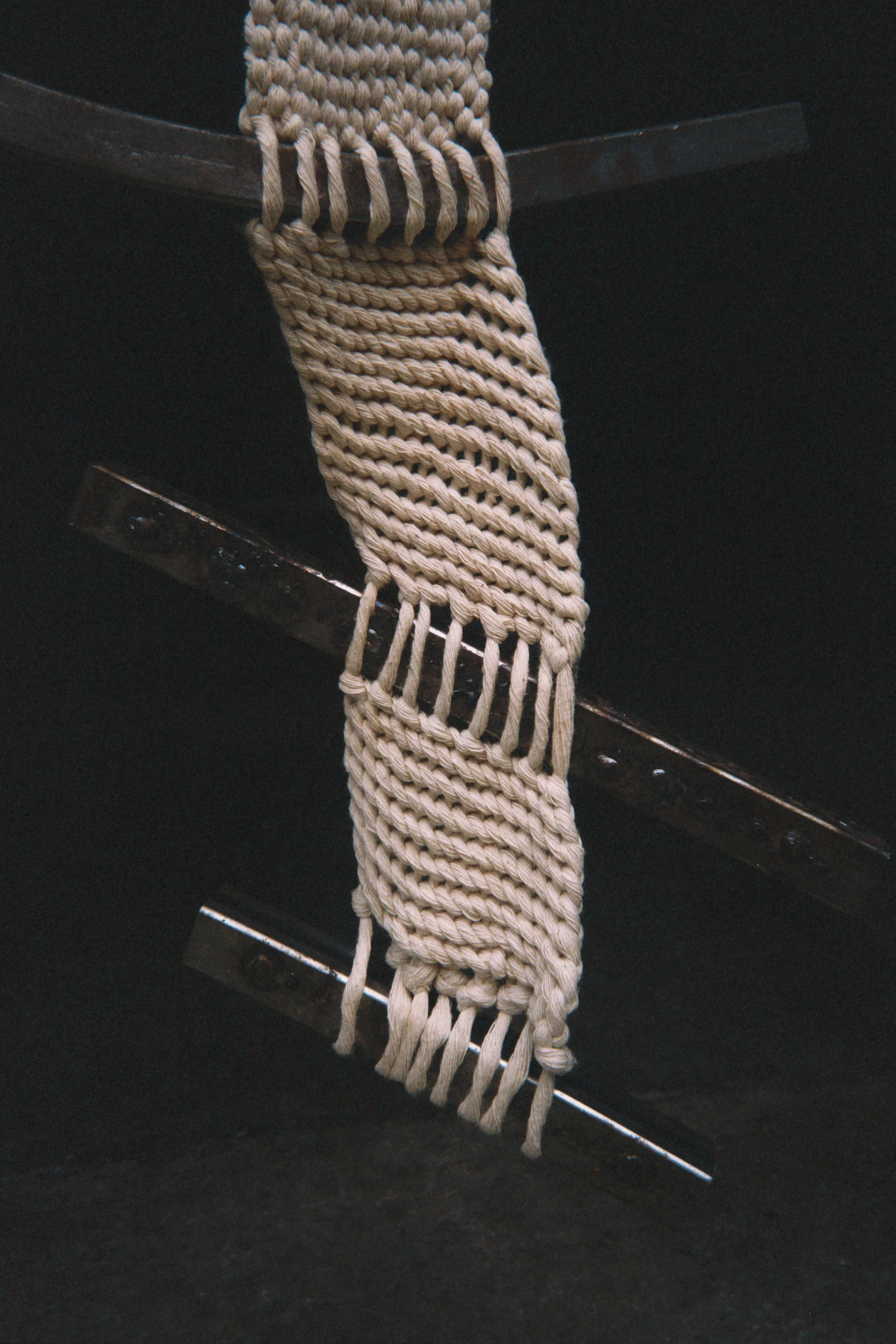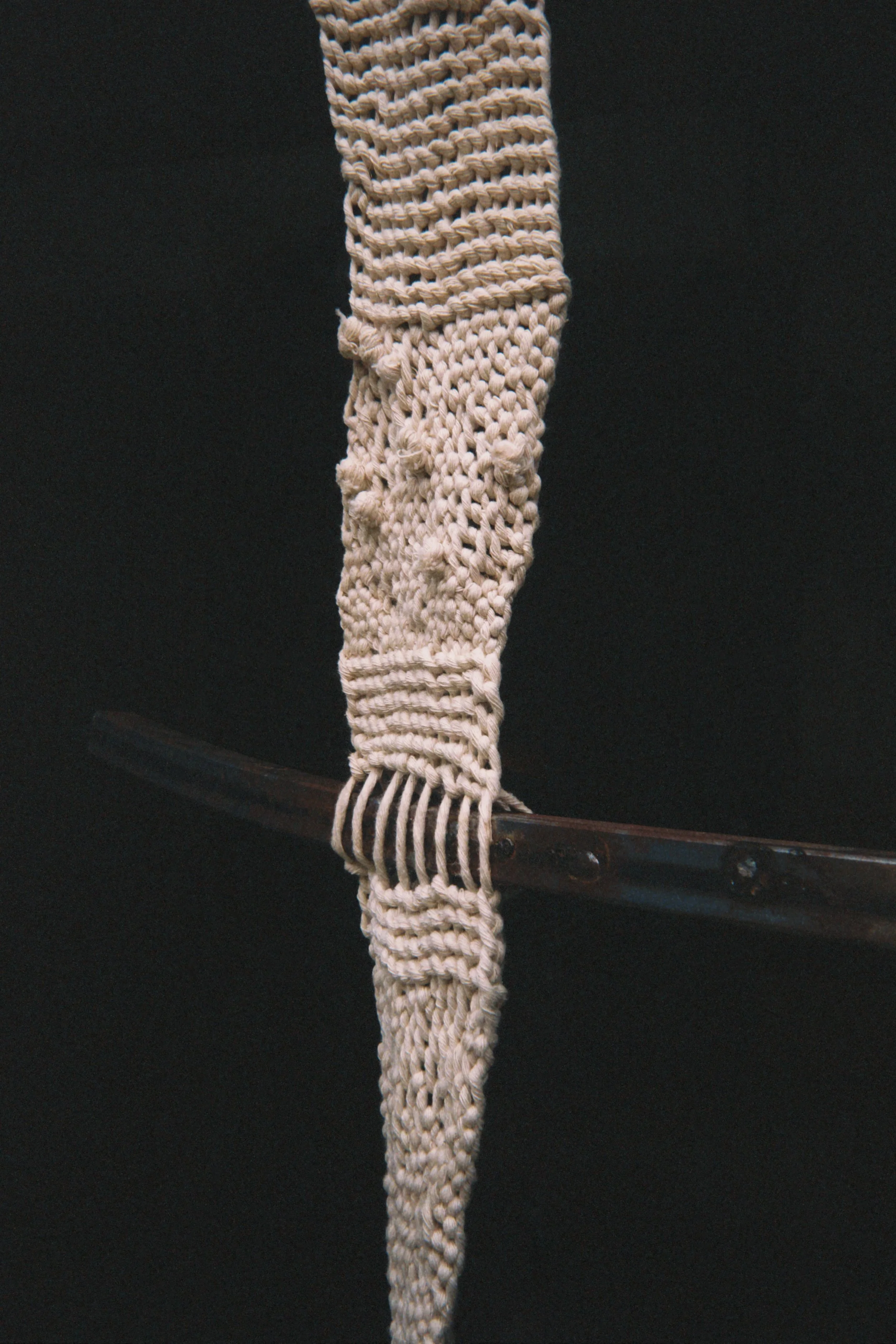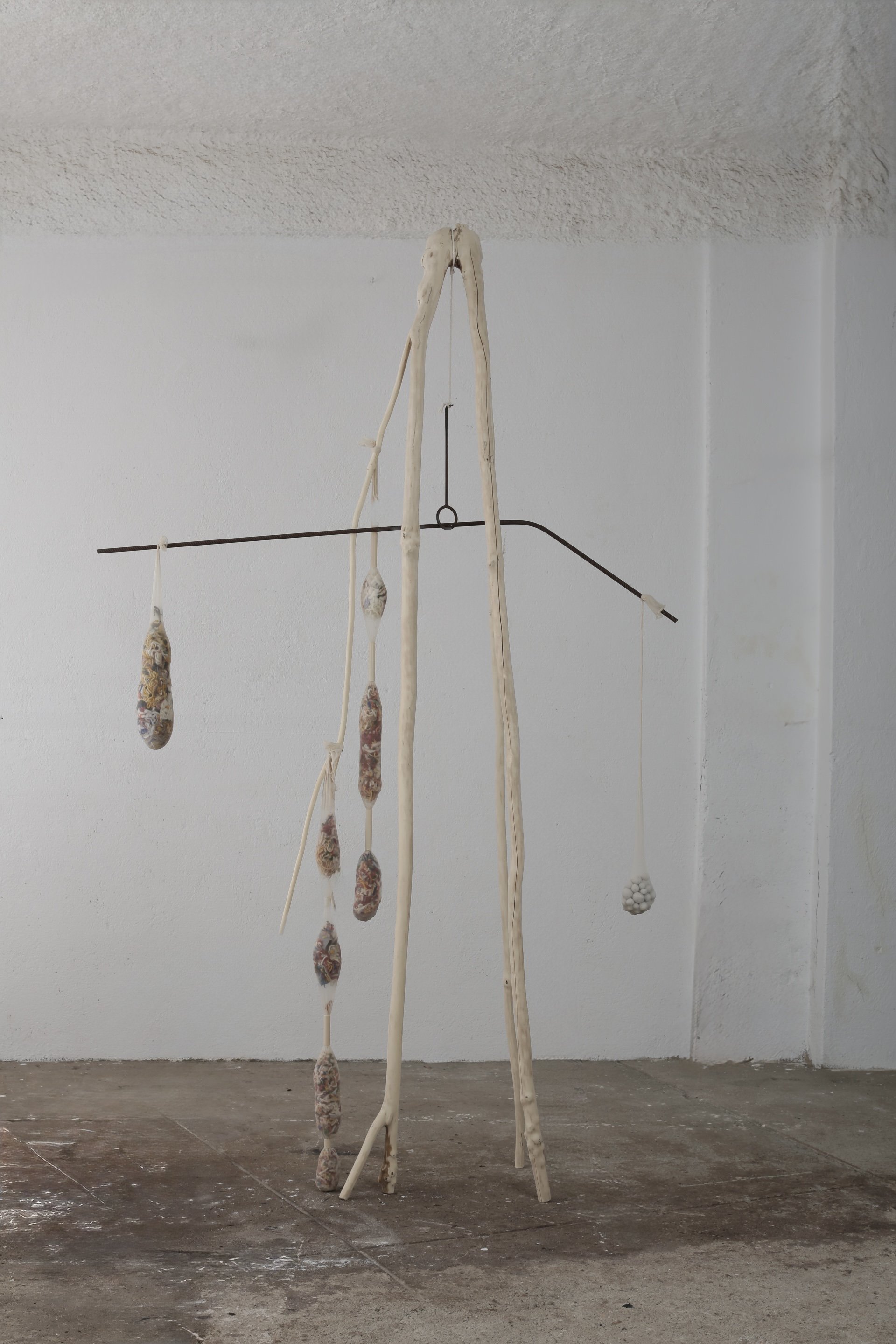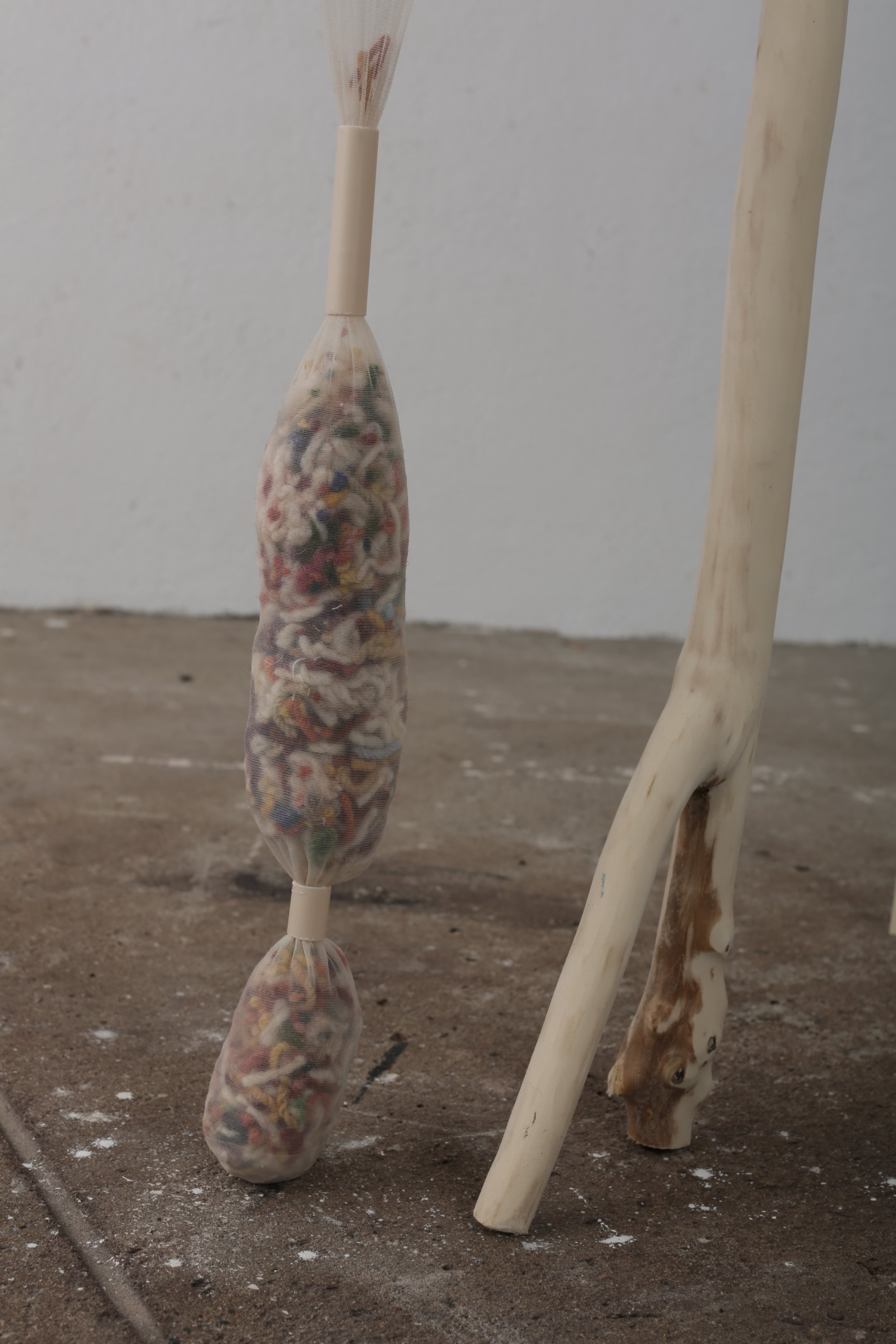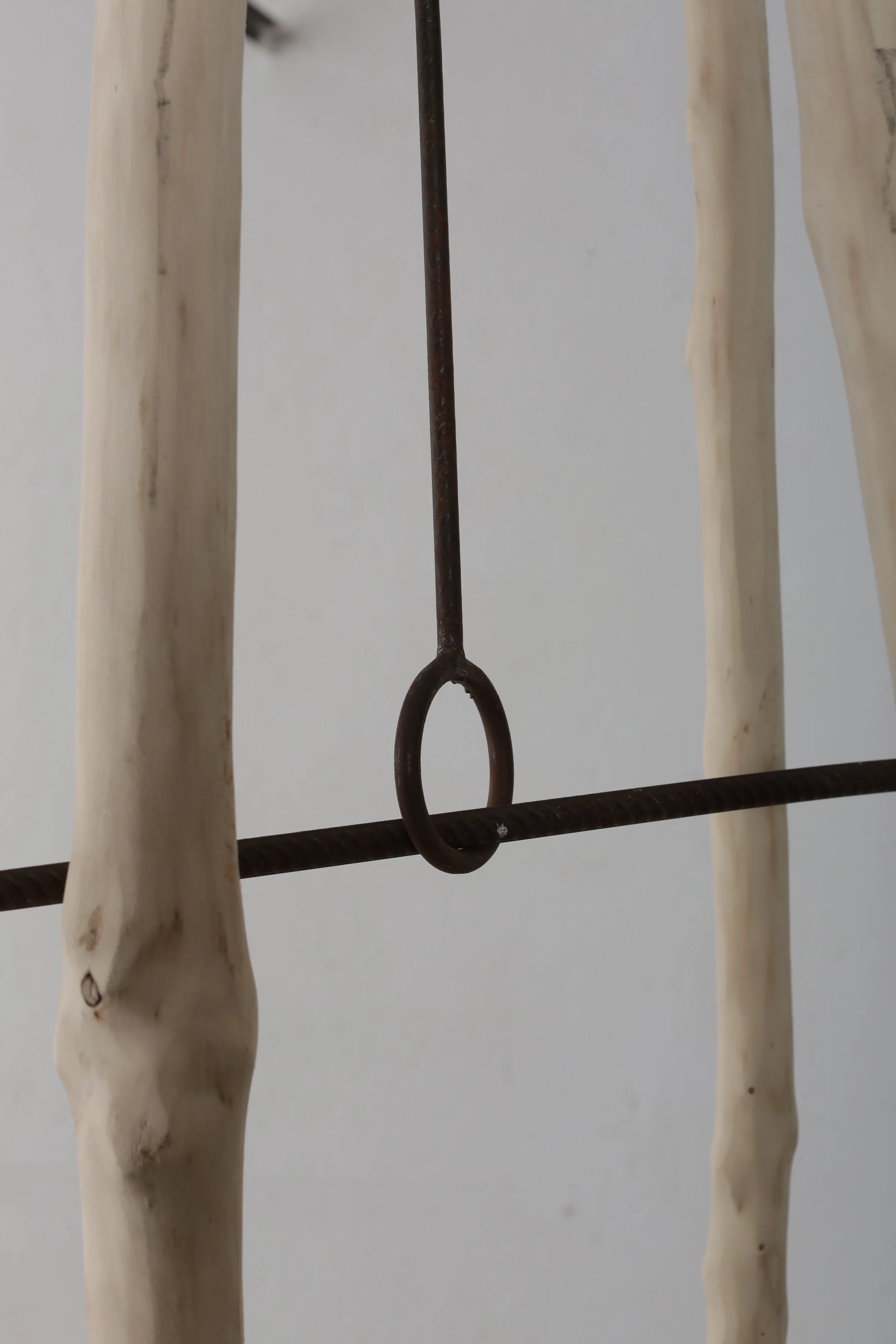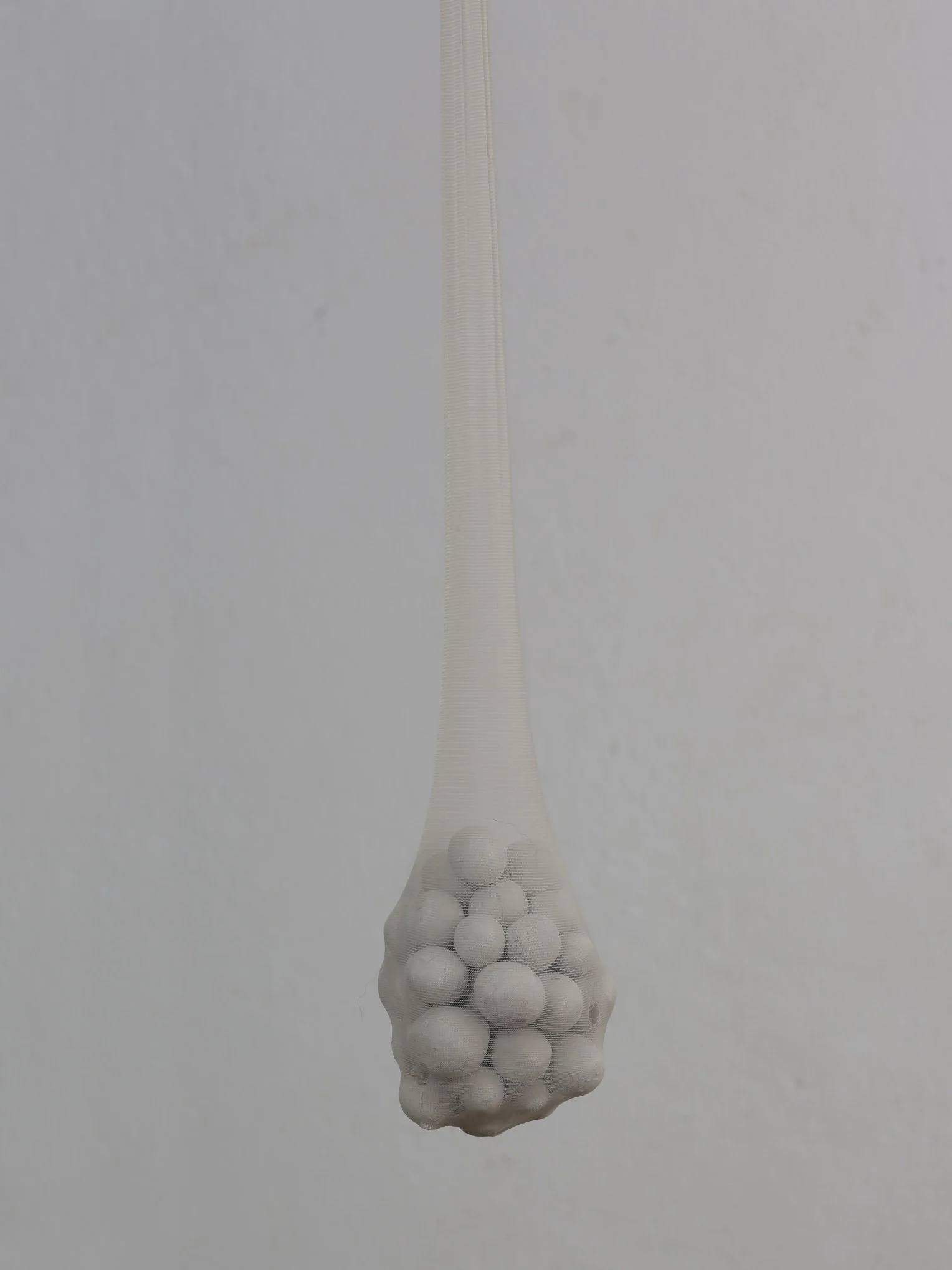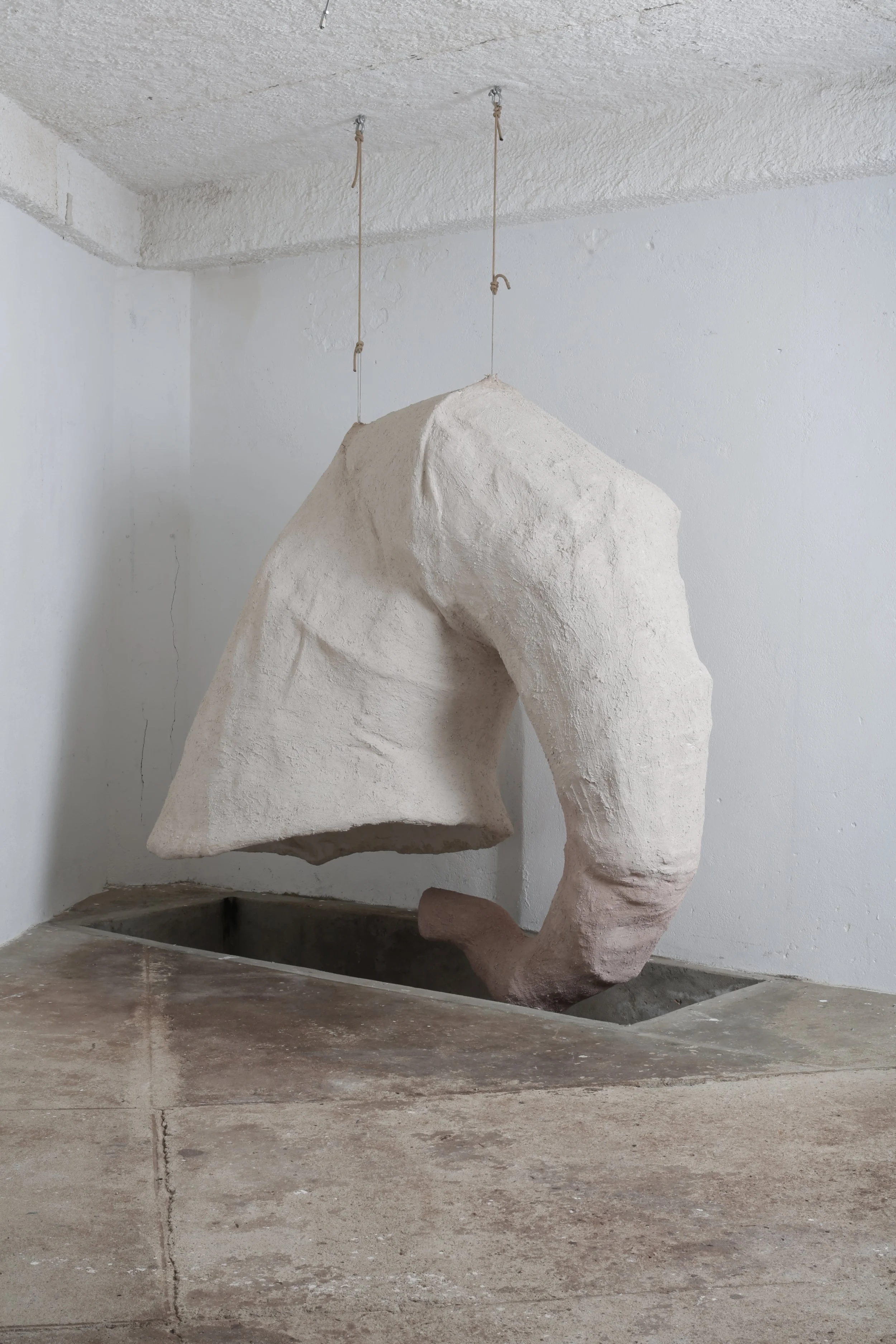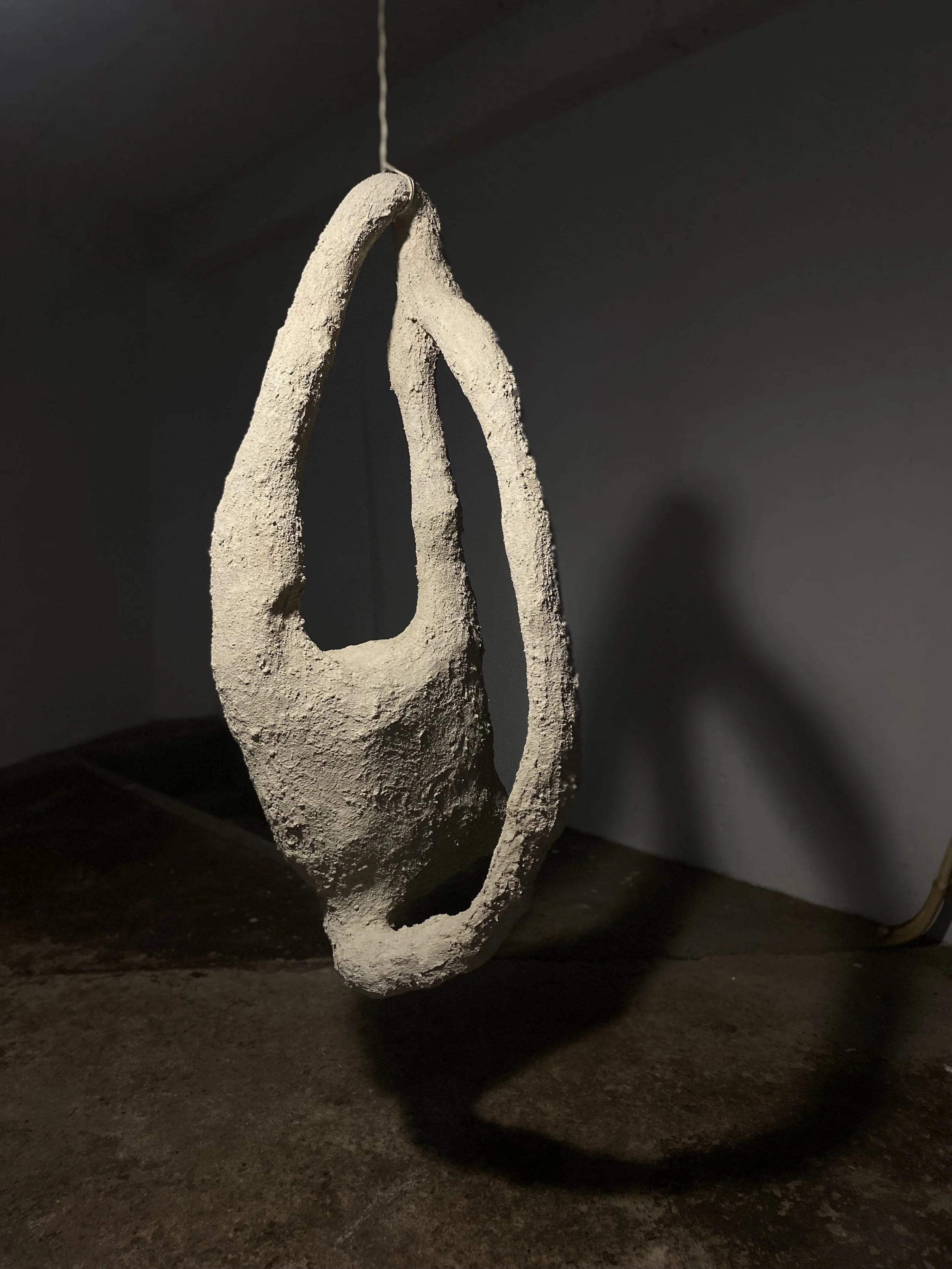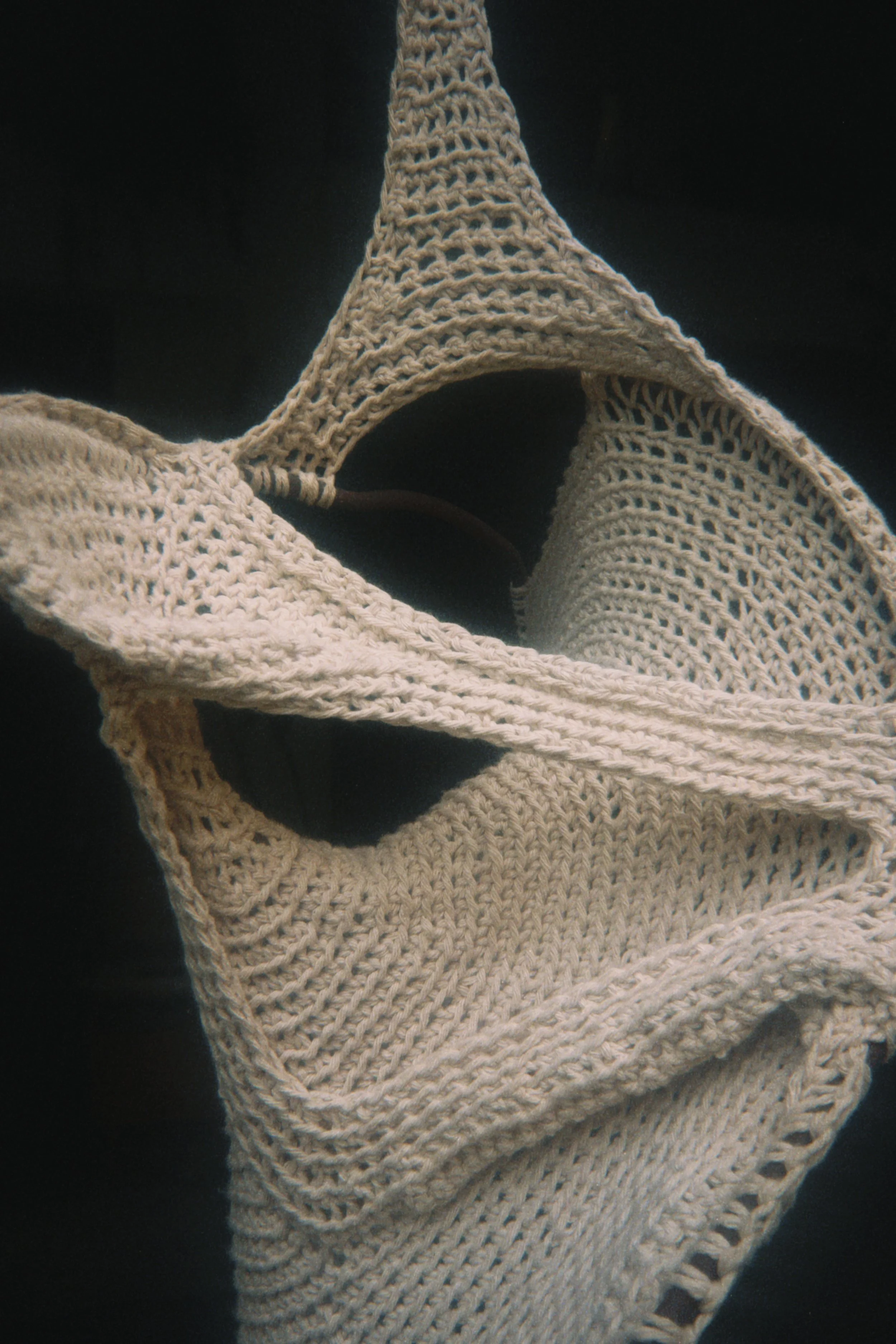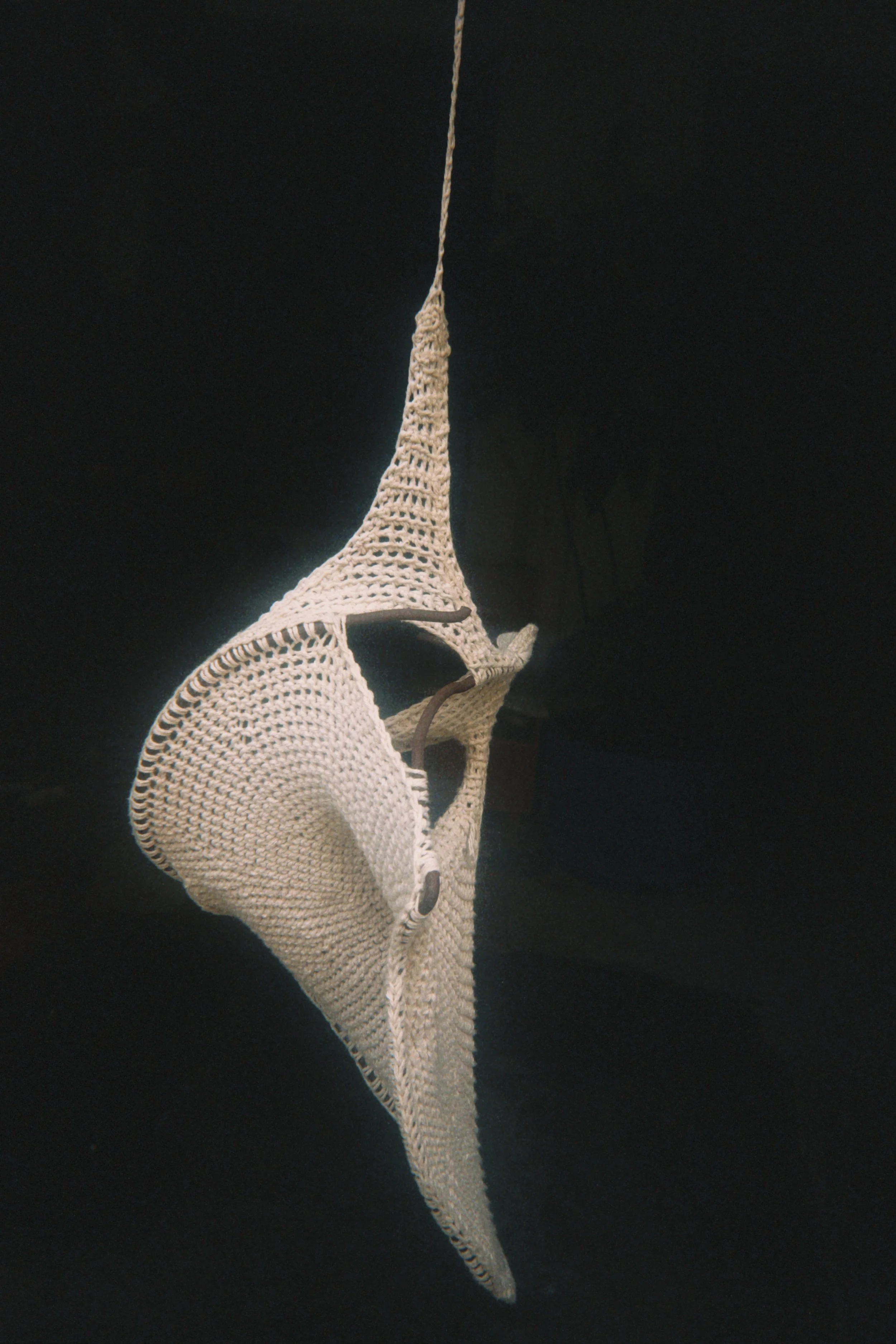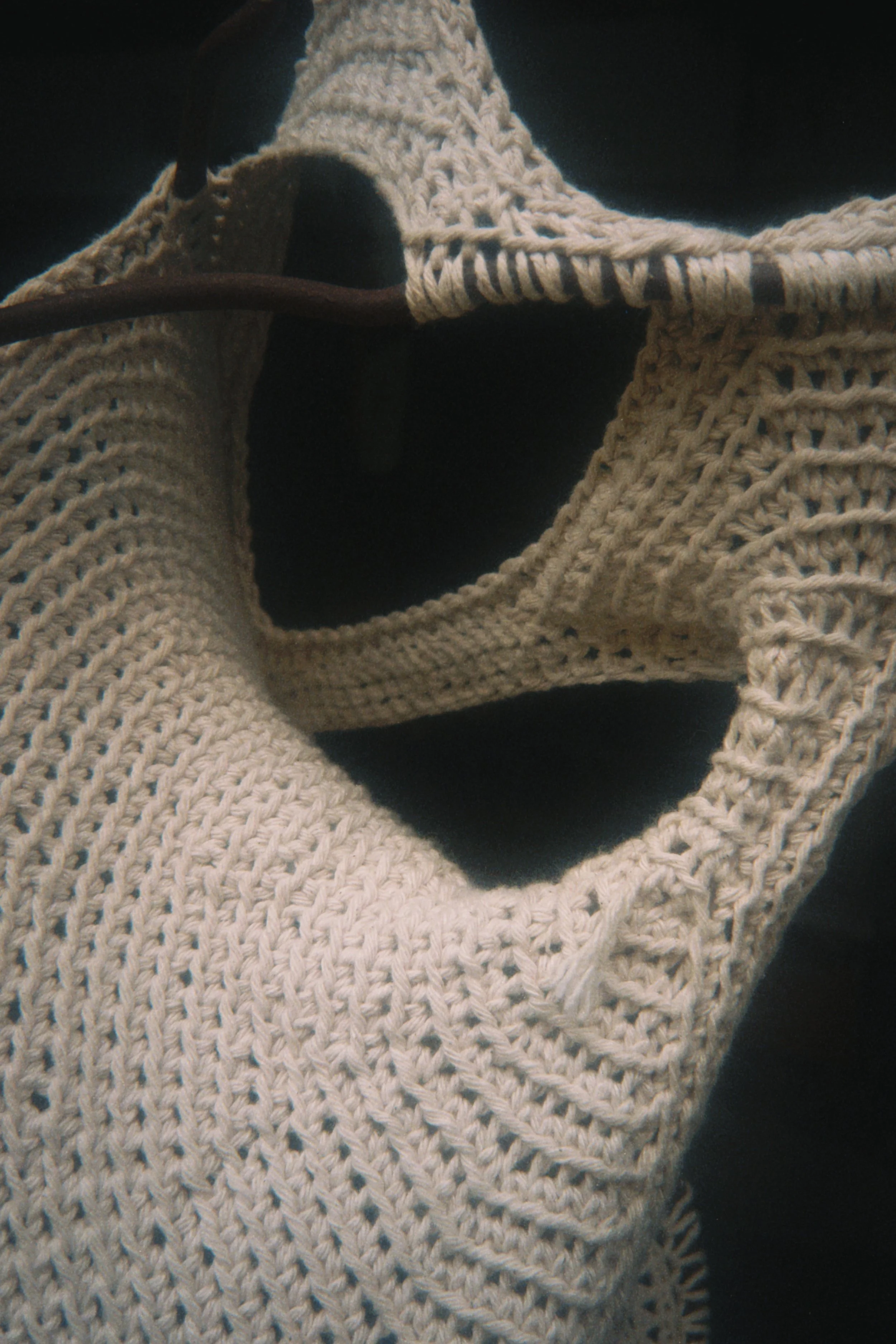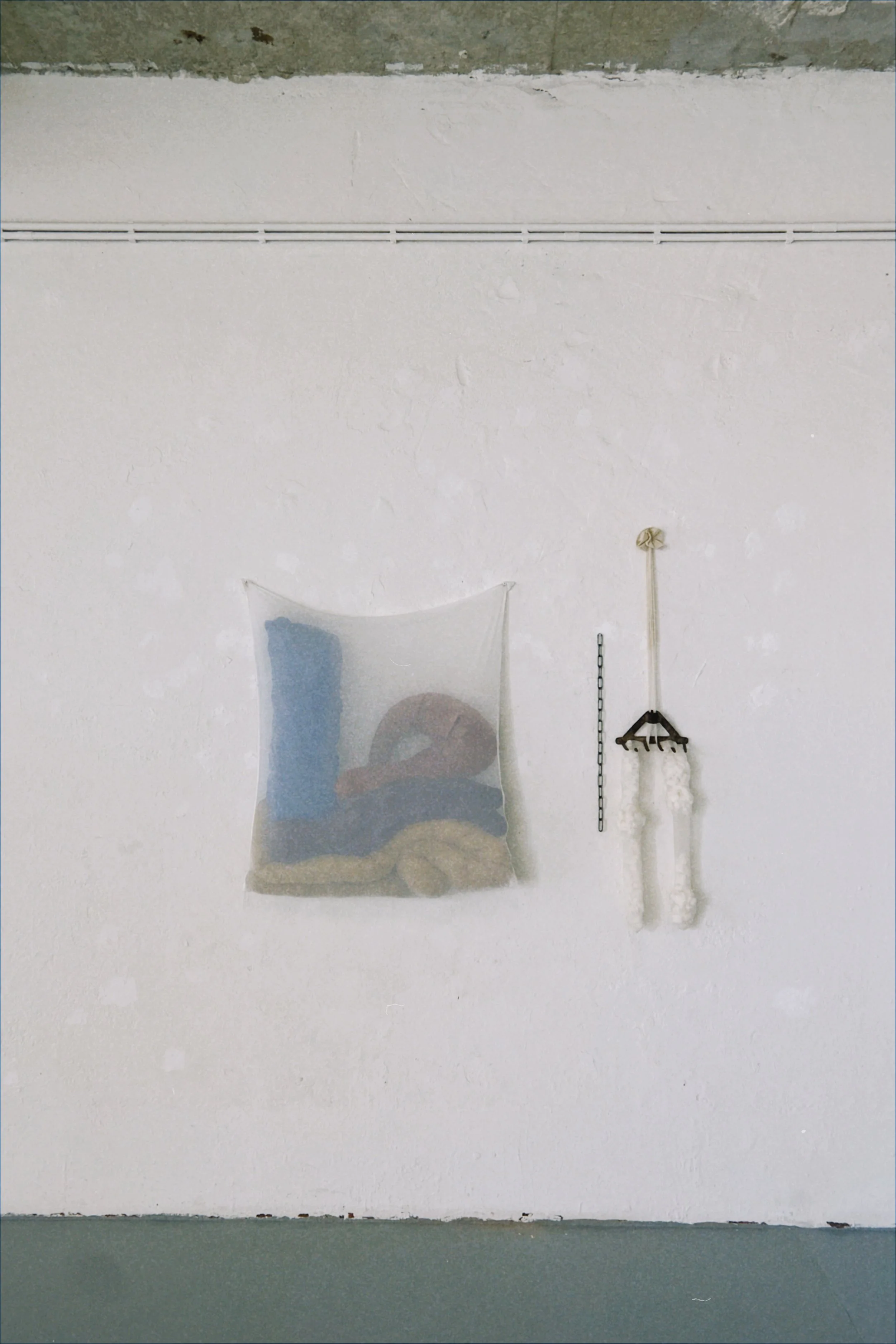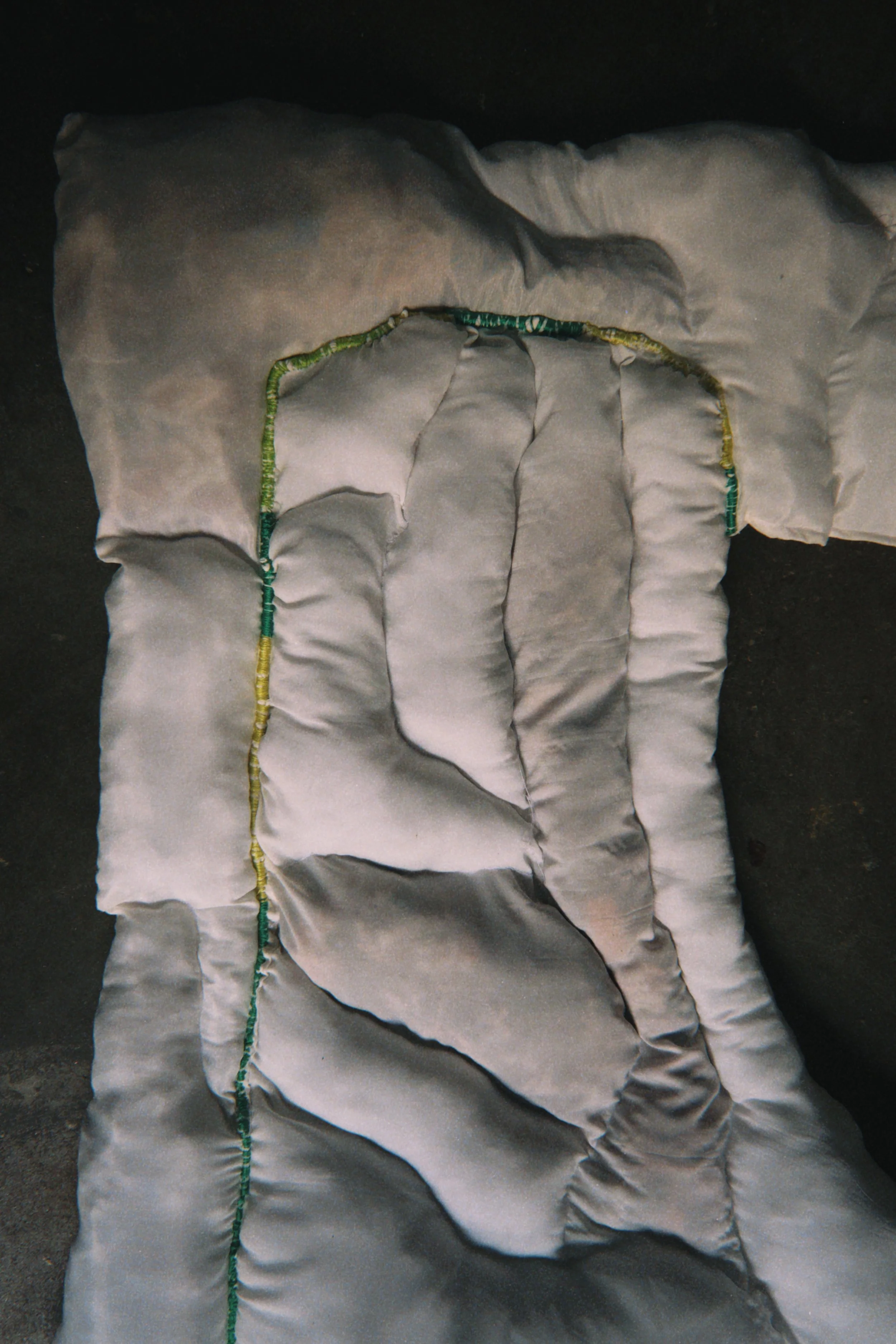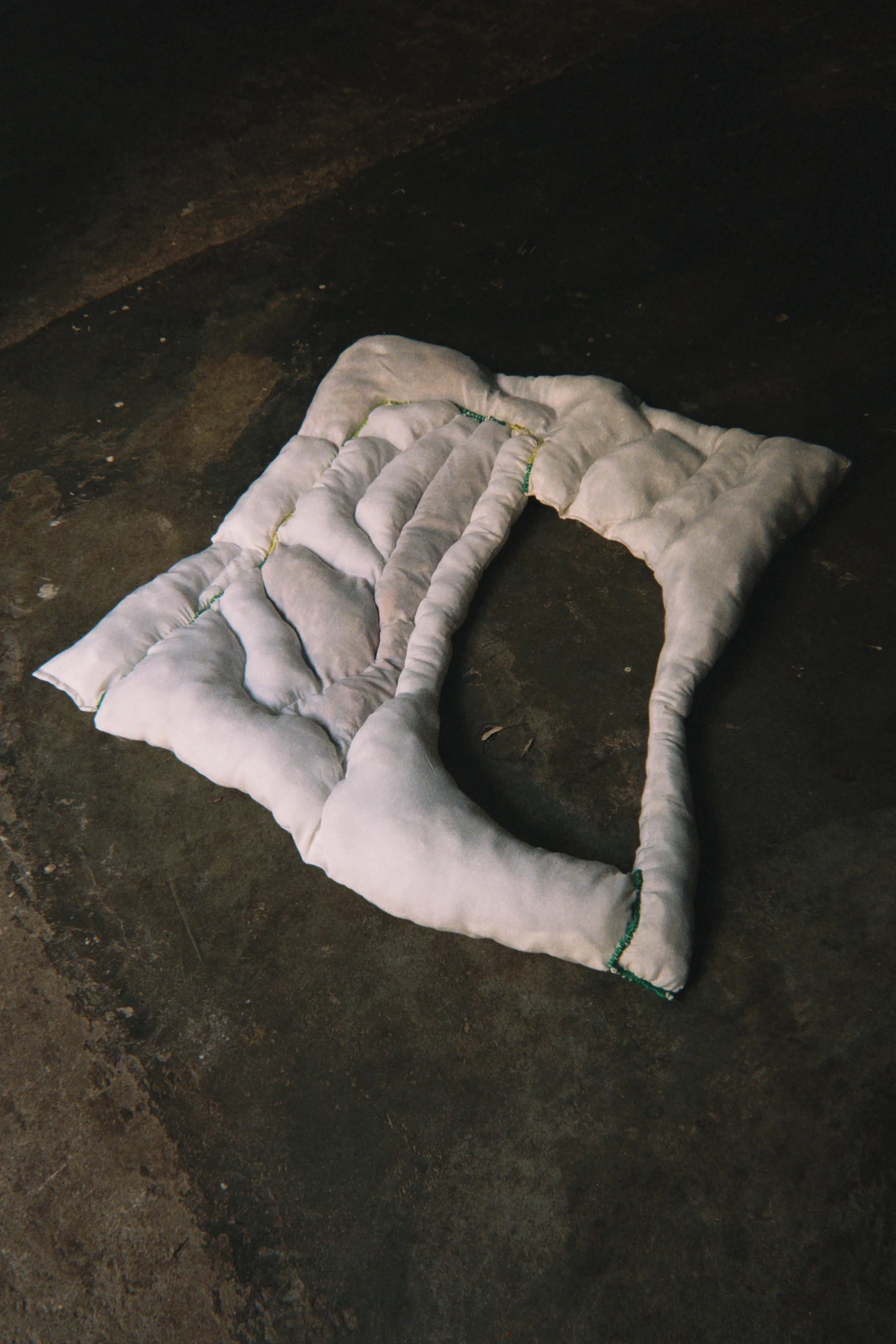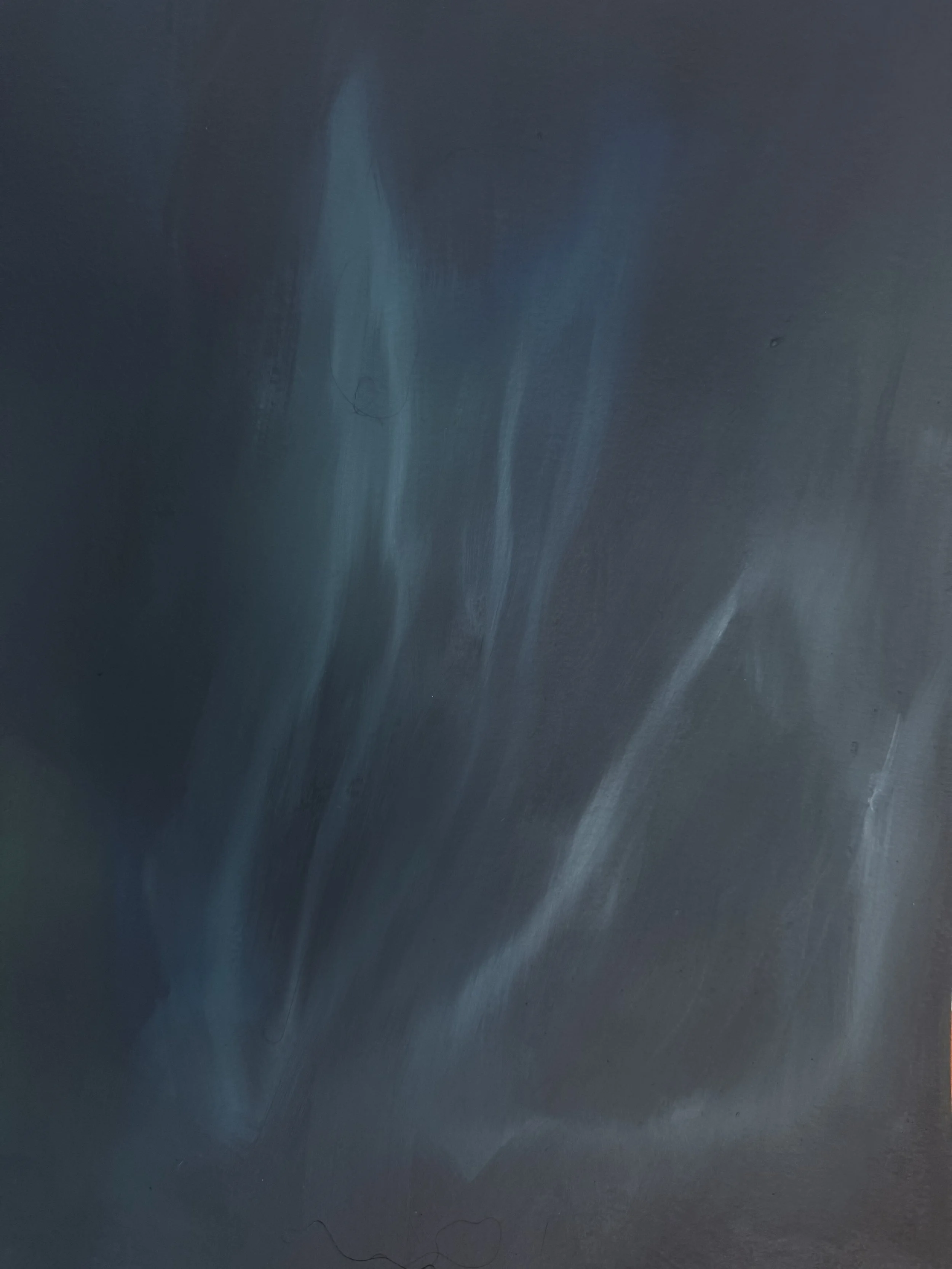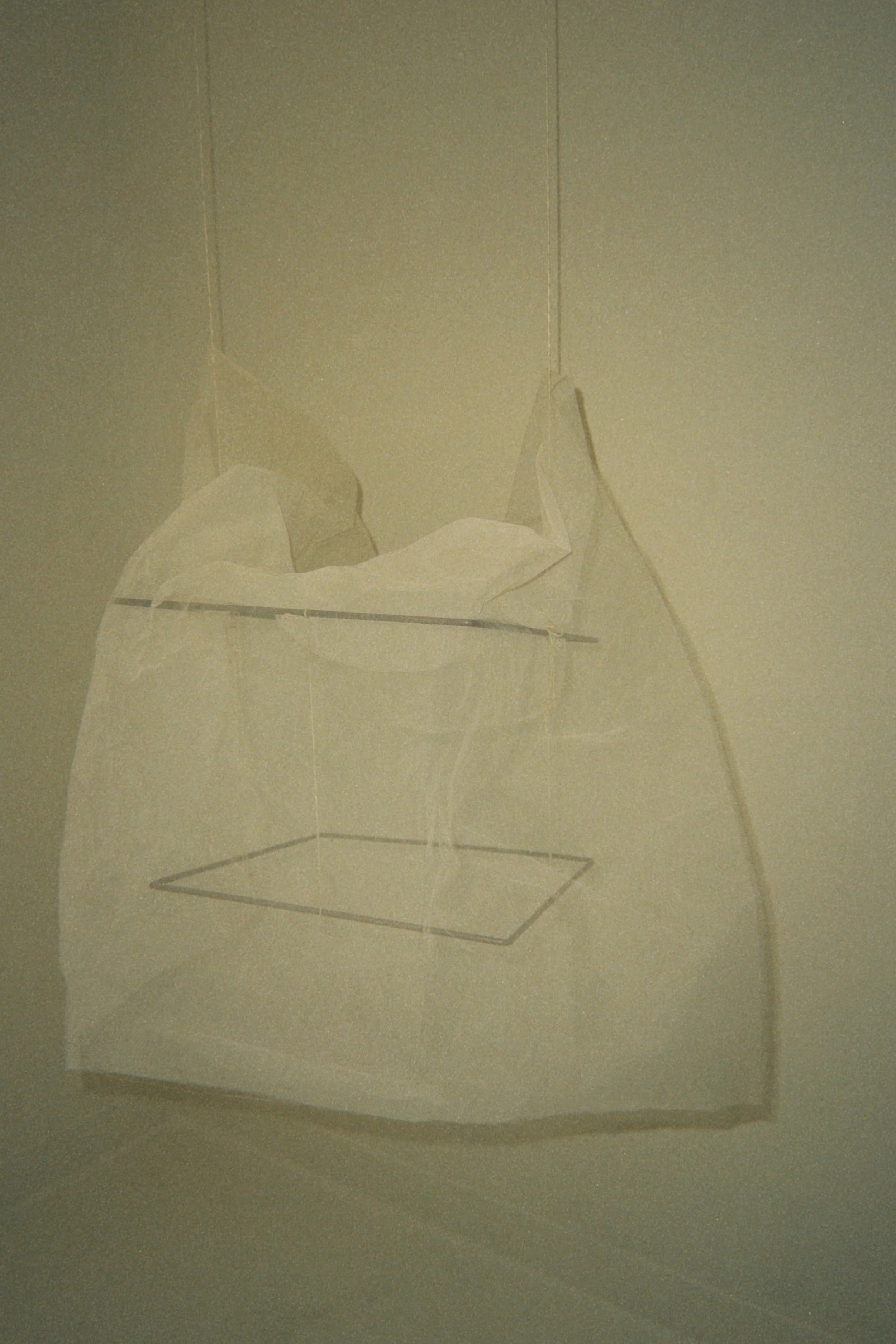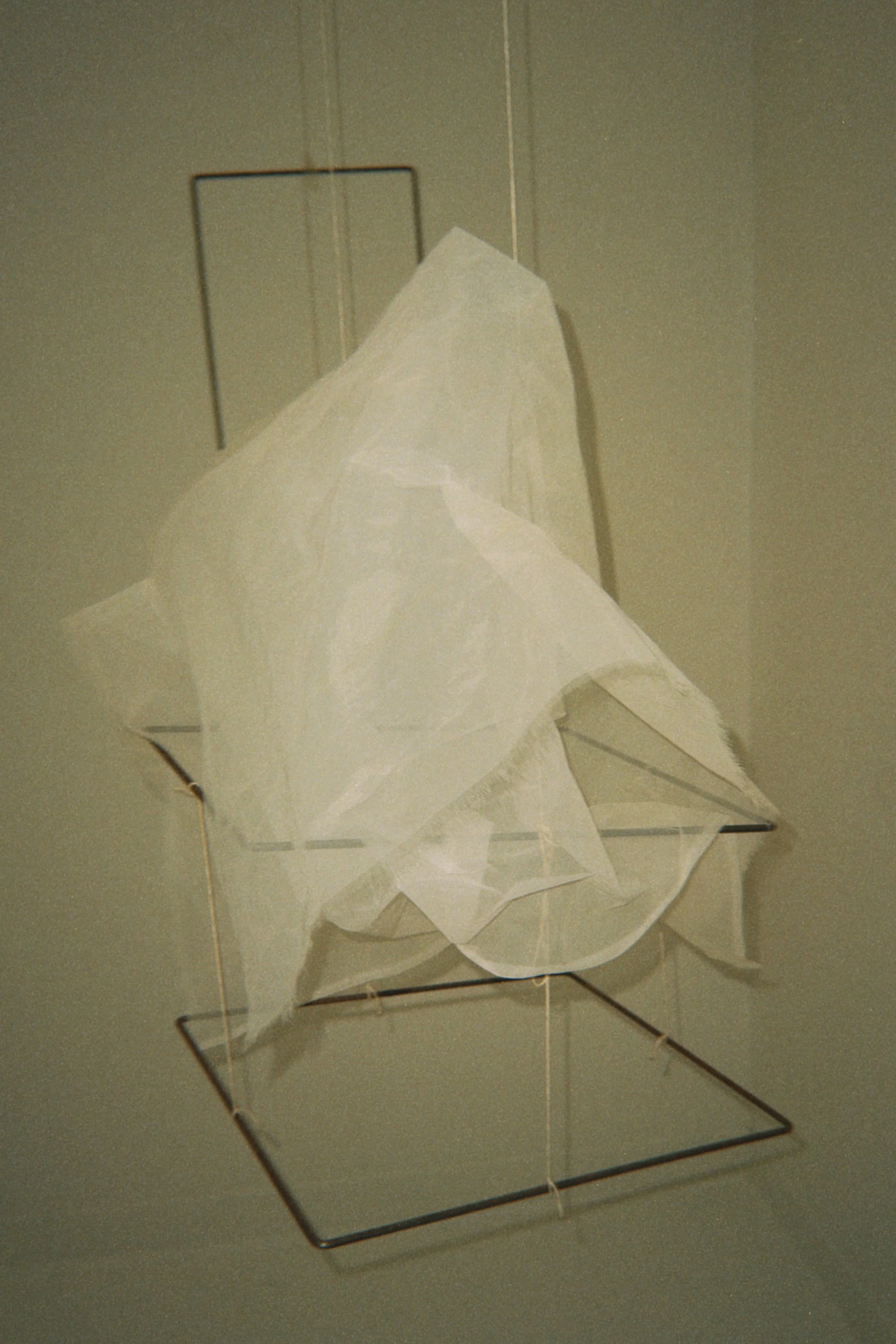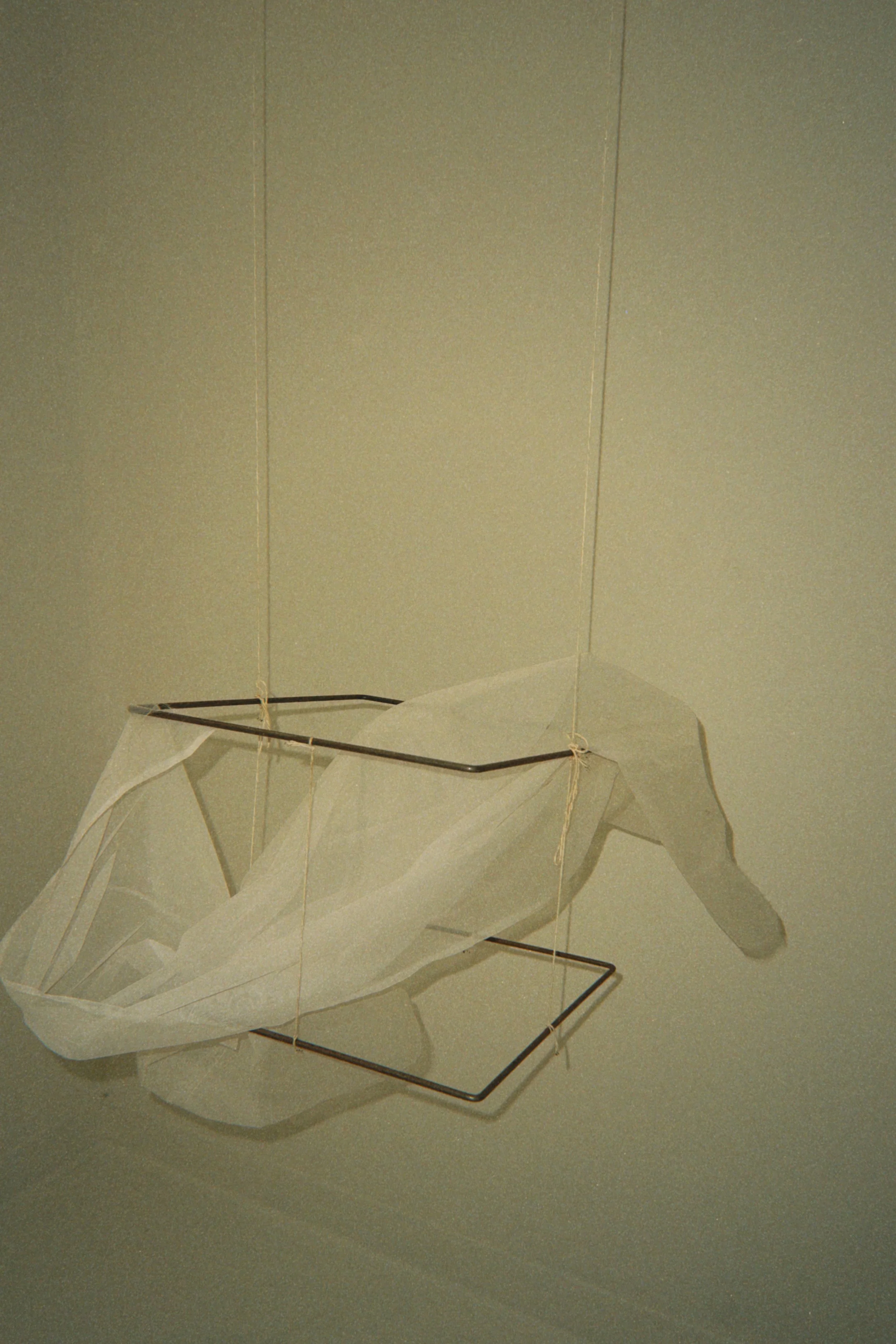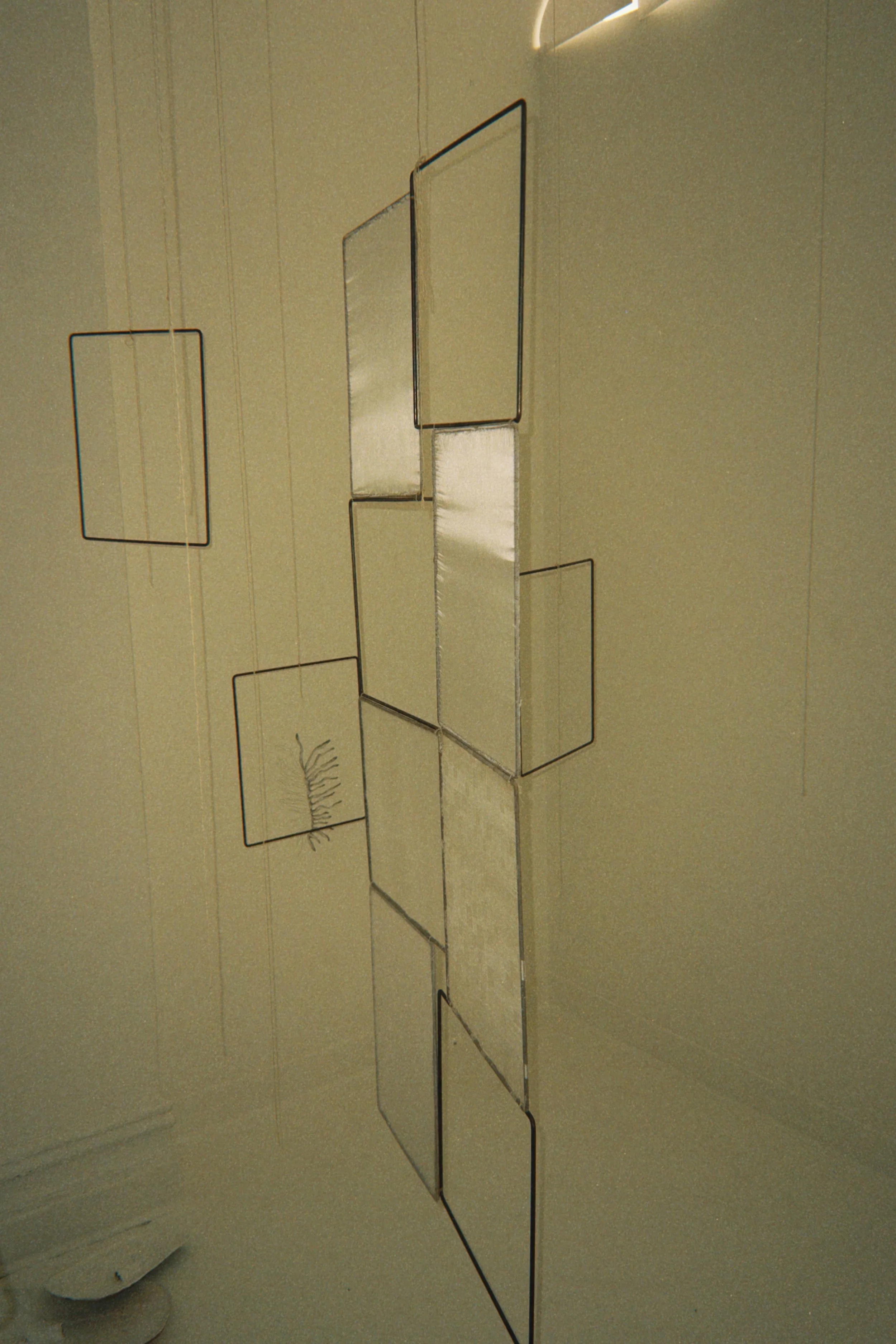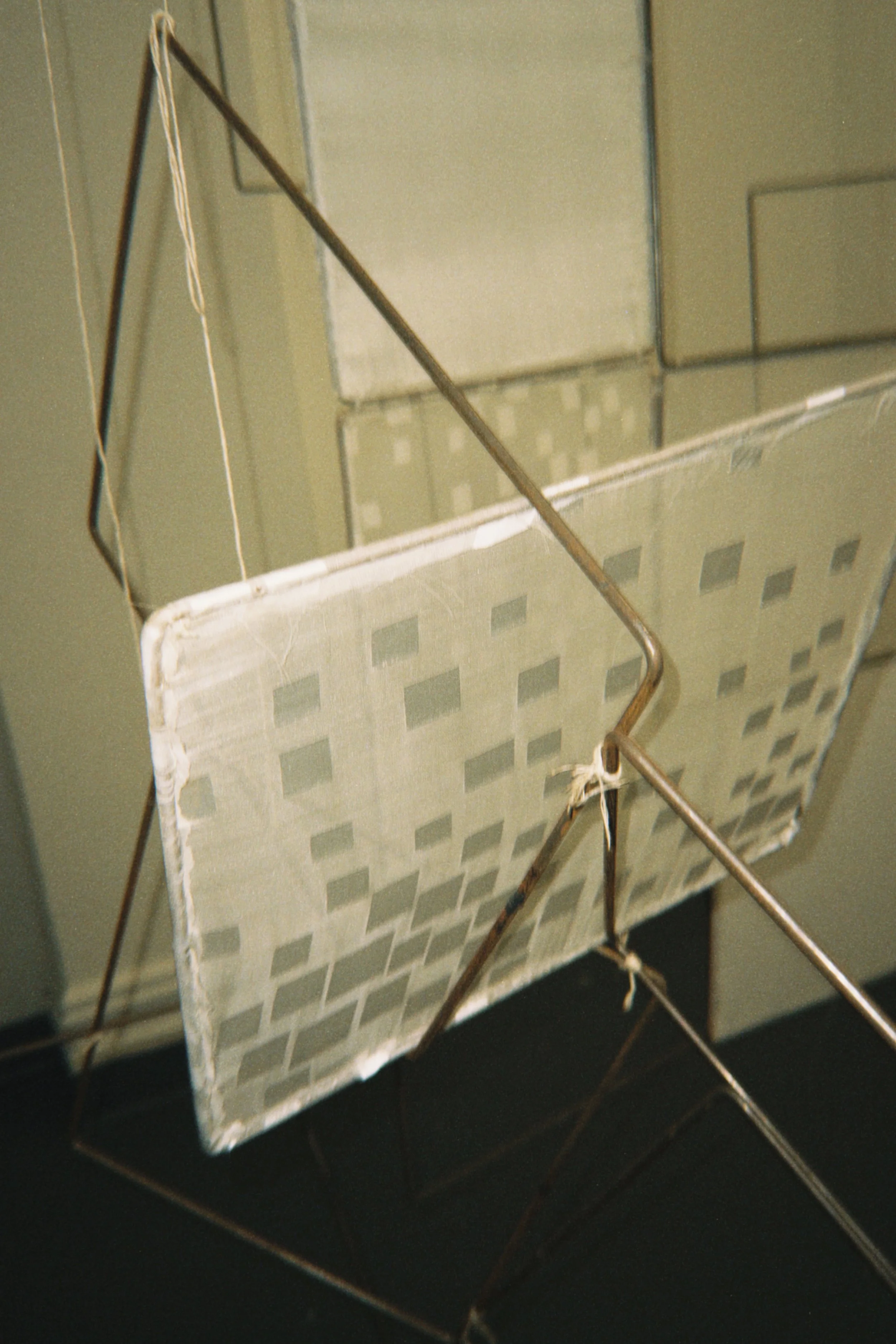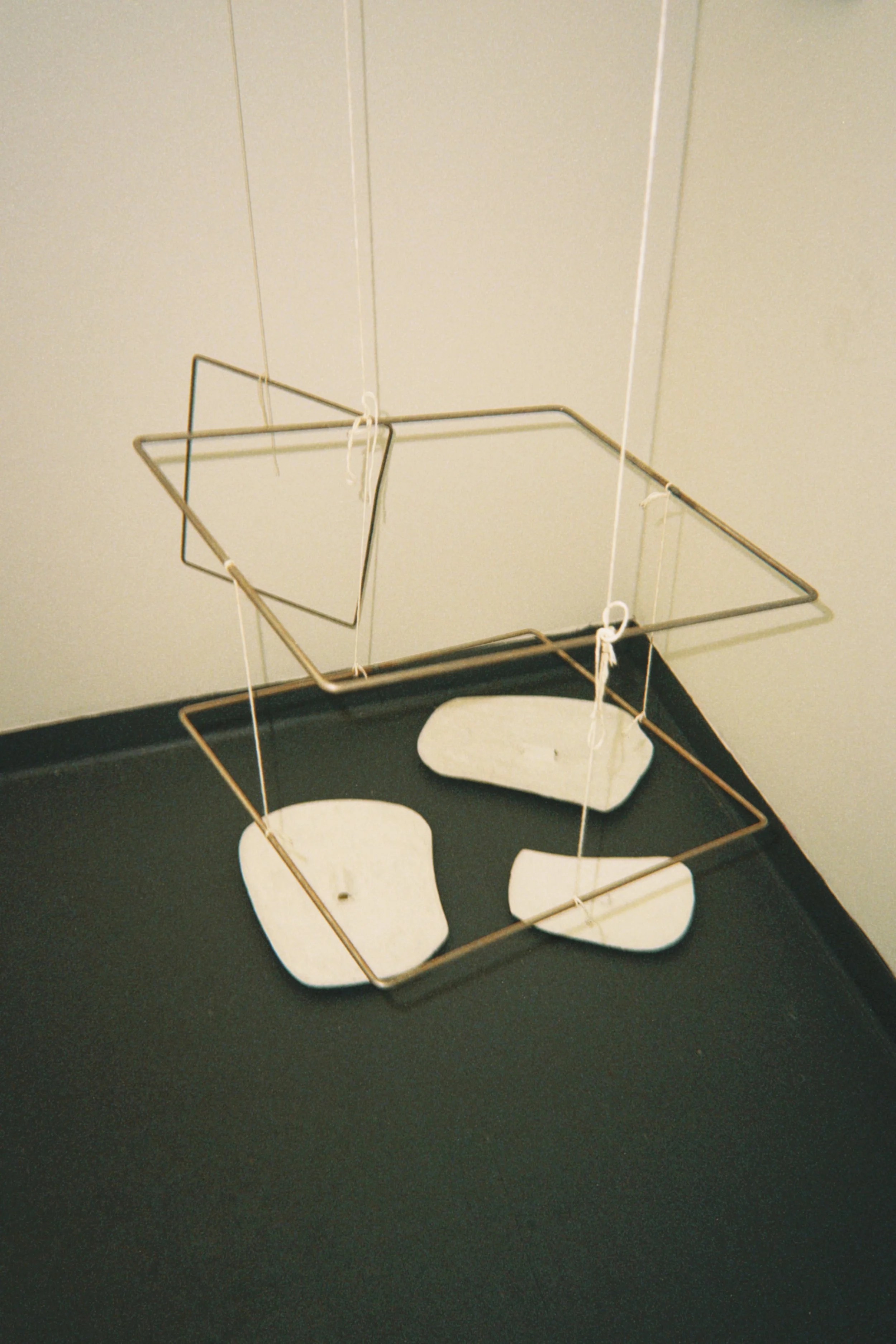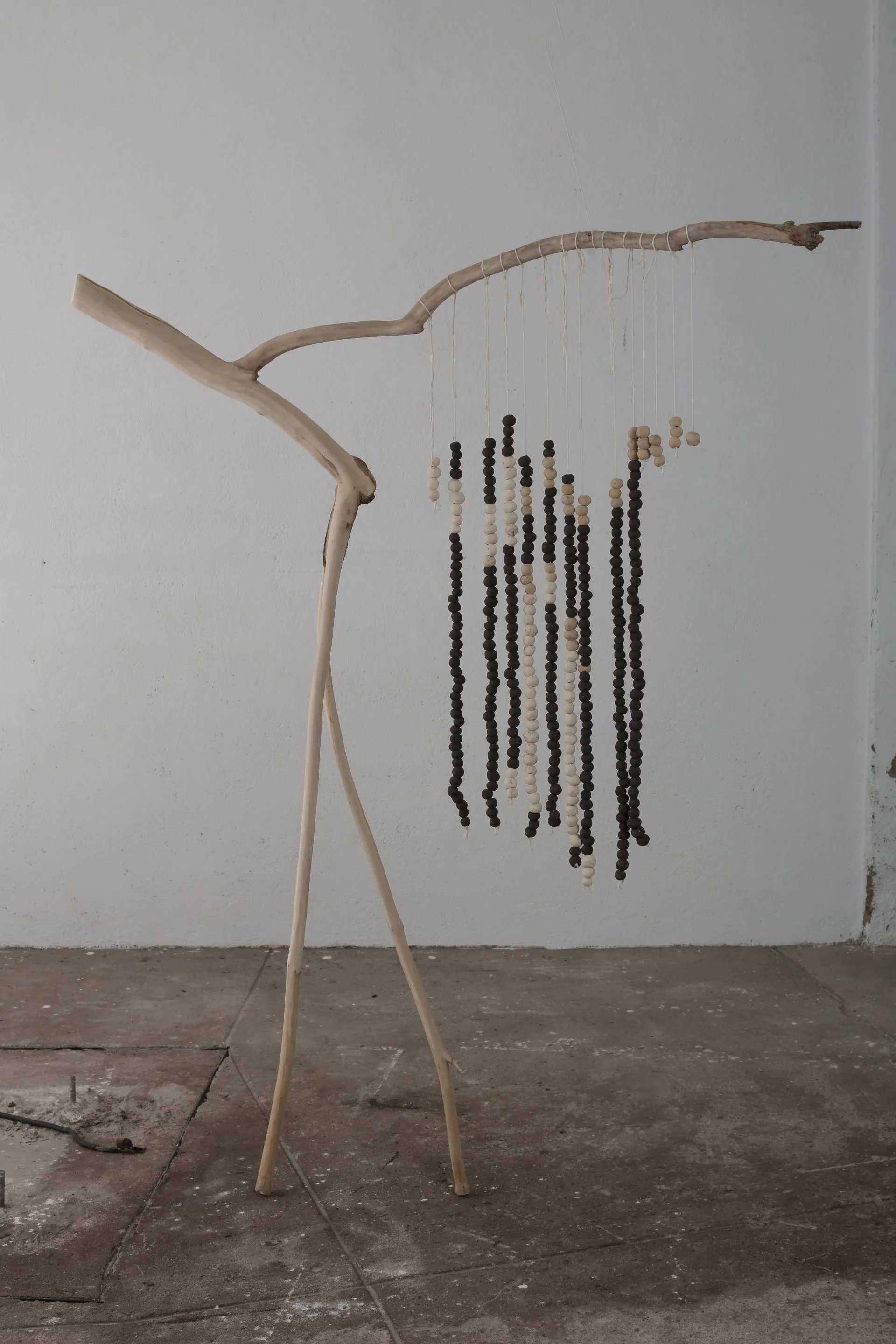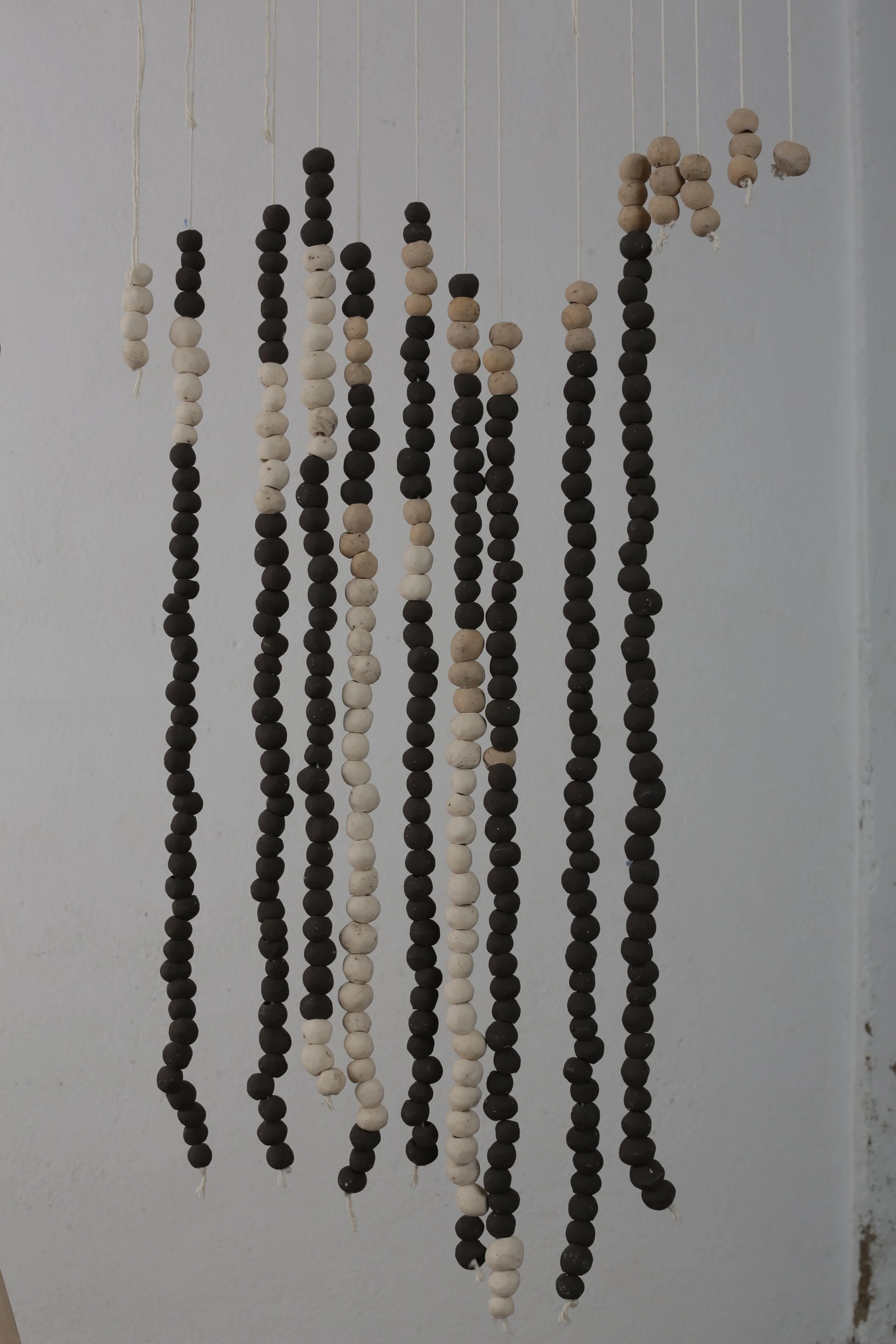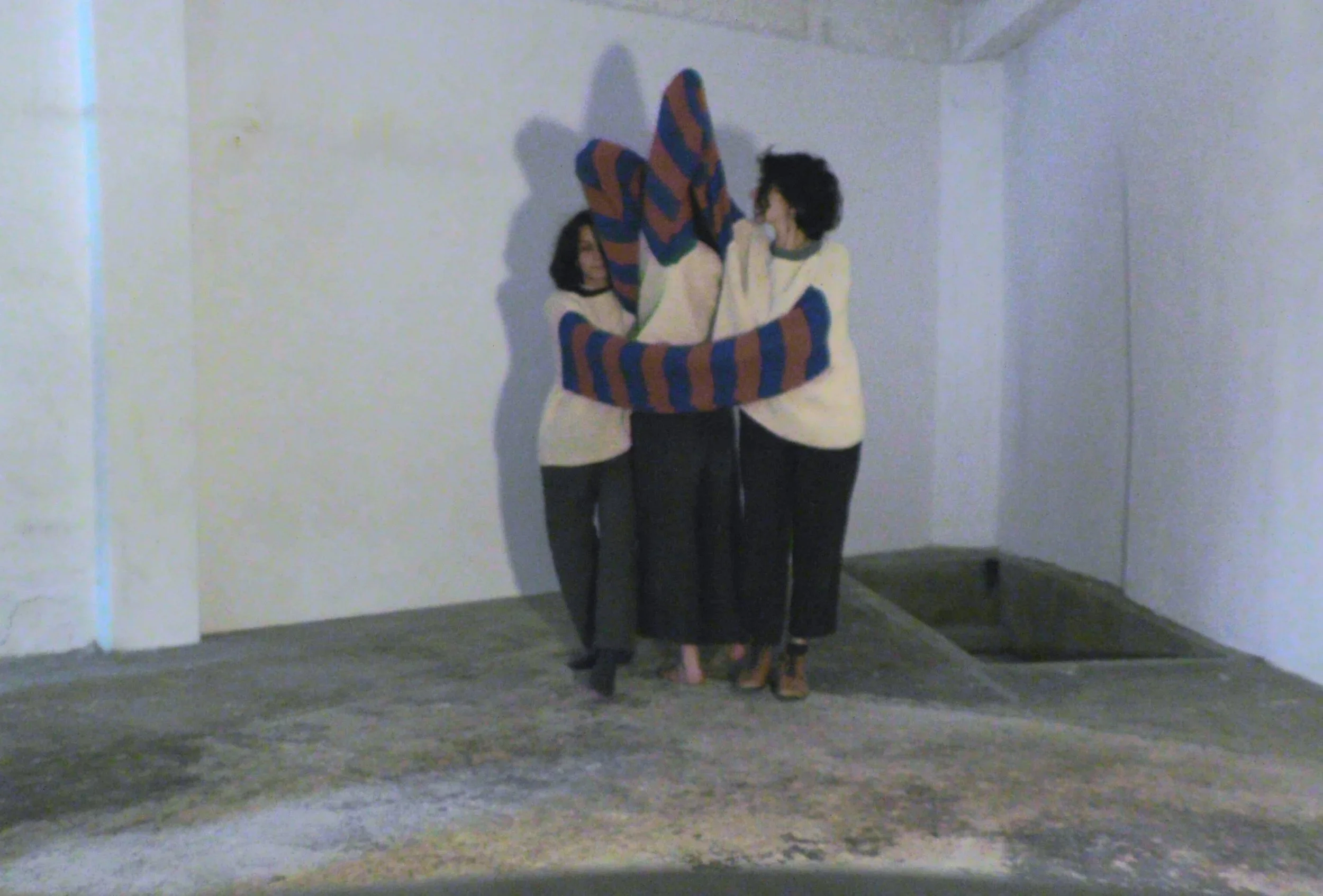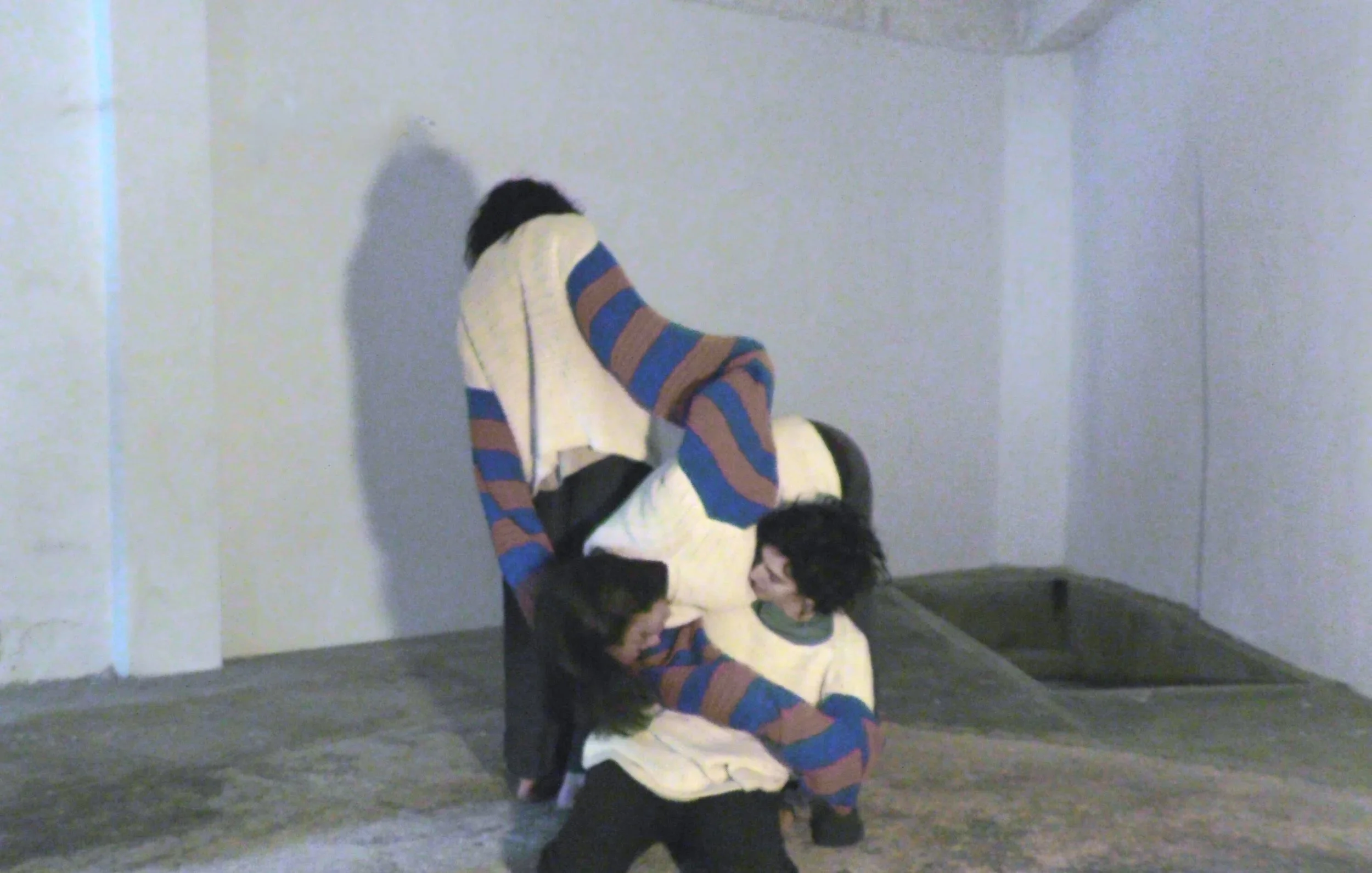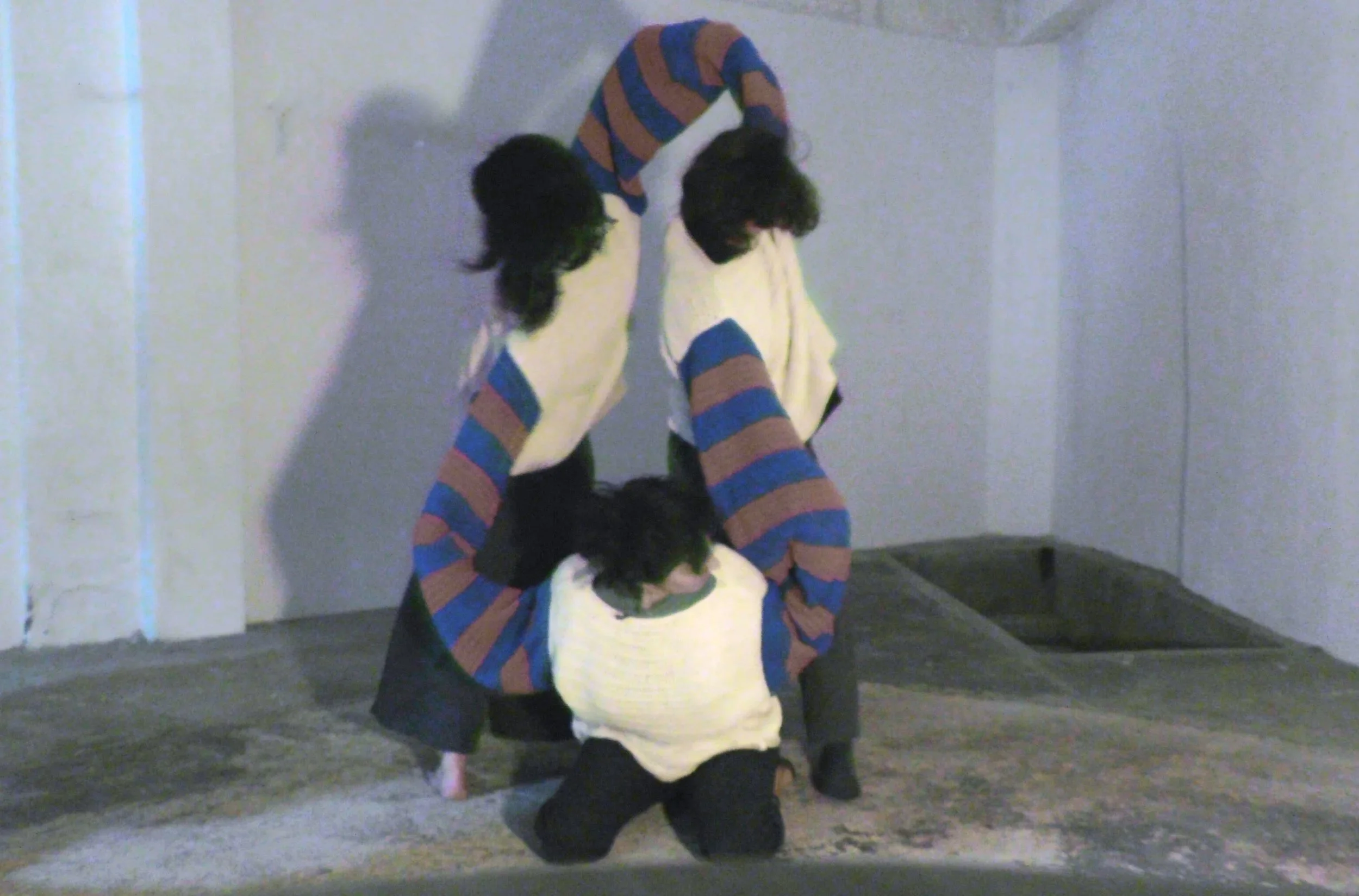A inversão de papéis entre os materiais, subvertendo as expectativas sobre sua função e significado. A proposta central reside em transformar aquilo que, convencionalmente, seria considerado estrutural e rígido em algo sustentado, enquanto o material macio, associado à fragilidade, assume o papel de suporte.
Essa abordagem desconstrói noções tradicionais de hierarquia material. O que é considerado frágil torna-se essencial para a estabilidade, desafiando a percepção comum de que a força reside apenas no rígido ou no ostensivo. A relação entre o sustentado e o sustentador é reconfigurada, sugerindo uma nova compreensão sobre equilíbrio e dependência.
The inversion of roles between materials, subverting expectations about their function and meaning. The central proposal lies in transforming what is conventionally considered structural and rigid into something supported, while the soft material, often associated with fragility, takes on the role of support.
This approach deconstructs traditional notions of material hierarchy. What is perceived as fragile becomes essential for stability, challenging the common perception that strength resides solely in rigidity or obvious solidity. The relationship between what supports and what is supported is reconfigured, suggesting a new understanding of balance and dependence.
Os processos internos que ocorrem em um indivíduo são dinâmicos e multifacetados, sendo continuamente influenciados por fatores contextuais, sociais e psicológicos. A maneira como esses processos se tornam visíveis—ou permanecem ocultos—varia de acordo com as circunstâncias, as relações interpessoais e a percepção subjetiva de cada momento.
Essa variabilidade levanta questões fundamentais sobre a construção da identidade e a gestão da autoexpressão: Como diferentes contextos influenciam o que revelamos de nós mesmos? Qual o papel da escolha consciente e inconsciente nesse processo? E como essas revelações moldam nossa interação com o outro?
Estas obras buscam explorar os mecanismos que determinam quando, como e quanto escolhemos expor nossos processos internos. Além disso, examina os fatores que mediam essas decisões, como a percepção da vulnerabilidade, a confiança interpessoal e as normas sociais. Entender essas dinâmicas contribui para o estudo da identidade humana, revelando como a transparência não é apenas um atributo fixo, mas um fenômeno relacional e contextual.
The internal processes occurring within an individual are dynamic and multifaceted, continuously influenced by contextual, social, and psychological factors. The way these processes become visible—or remain hidden—varies according to circumstances, interpersonal relationships, and the subjective perception of each moment.
This variability raises fundamental questions about the construction of identity and the management of self-expression: How do different contexts influence what we reveal about ourselves? What role do conscious and unconscious choices play in this process? And how do these revelations shape our interactions with others?
These works aim to explore the mechanisms that determine when, how, and to what extent we choose to expose our internal processes. Furthermore, they examine the factors that mediate these decisions, such as the perception of vulnerability, interpersonal trust, and social norms. Understanding these dynamics contributes to the study of human identity, revealing how transparency is not merely a fixed attribute but a relational and contextual phenomenon.
O firme e o frágil, o que sustenta e o que escapa. Por meio da experimentação com a matéria, busco o instante em que o contraste se converte em respiro, em relação. Habitar um território de tensão.
The firm and the fragile, that which sustains and that which escapes. Through experimentation with matter, I seek the moment when contrast transforms into breath, into relationship. To inhabit a territory of tension.
Quando a voz se projeta, ela retorna — mais alta, mais insistente. um espaço de reflexão sobre as consequências das palavras e dos gestos. o que dizemos, como pensamos e de que maneira atuamos a partir do que expressamos? Ao amplificar o eco do discurso, há uma pausa crítica sobre a relação entre intenção, pensamento e desdobramento — revelando tensões, desvios e responsabilidades que emergem no intervalo entre o que se emite e o que retorna.
When the voice projects outward, it returns — louder, more insistent.
A space for reflecting on the consequences of words and gestures. What do we say, how do we think, and in what ways do we act upon what we express? By amplifying the echo of speech, a critical pause emerges around the relationship between intention, thought, and unfolding — revealing tensions, divergences, and responsibilities that arise in the interval between what is emitted and what returns.
Que formas surgem quando o corpo não está presente, mas sua presença é insinuada pelo espaço, pelo movimento ou pelas marcas que deixa? Como essas formas residuais revelam a tensão e o diálogo do corpo com o entorno?
What forms arise when the body is absent, yet its presence is suggested through space, movement, or the traces it leaves? How do these residual forms reveal the body’s tension and its dialogue with the surrounding environment?
Subverter os papéis e explorar suas dependências — entre o que sustenta e o que se apoia, o que pesa e o que se dissolve
To subvert roles and explore their dependencies — between what supports and what is supported, what carries weight and what dissolves.
Como o contraste, ao invés de se afirmar como oposição, pode ser compreendido como um campo fértil de interdependência e transformação, no qual as diferenças não se anulam, mas se reconfiguram mutuamente?
How can contrast, instead of asserting itself as opposition, be understood as a fertile field of interdependence and transformation, where differences do not cancel each other out but are mutually reconfigured?
Within the skin, movement without a name.
Within the skin, keeping myself grounded,
feeling the weight of silence,
the rhythm that pulses between firmness and fragility.
The body folds upon itself,
echo of gestures no one sees,
memory dwelling in the bones,
bringing to the surface what has always been hidden.
Between what sustains and what slips away,
the boundary dissolves and reforms,
each nerve, each fold,
a map of tensions that breathes.
And even when the hand does not touch,
when the gaze does not linger,
the body continues,
weaving space, tracing absence,
learning to exist between strength and surrender.
Dentro da pele, movimento sem nome.
Dentro da pele, me manter aterrada,
sentindo o peso do silêncio,
o ritmo que pulsa entre firmeza e fragilidade.
O corpo se dobra sobre si mesmo,
eco de gestos que ninguém vê,
memória que habita os ossos,
trazendo à superfície o que sempre se escondeu.
Entre o que sustenta e o que escapa,
o limite se dissolve e se refaz,
cada nervo, cada dobra,
um mapa de tensões que respira.
E mesmo quando a mão não toca,
quando o olhar não fixa,
o corpo continua,
tecendo espaço, desenhando ausência,
aprendendo a existir entre a força e a entrega.
Alternando entre visibilidade e transparência, cada elemento registra pequenas variações do ar e conserva um equilíbrio instável sem se rigidificar.
Shifting between visibility and transparency, each element registers subtle changes in the air and maintains an unstable equilibrium without solidifying.
Due to the existence of private property, many are able to develop a certain degree of Individualism, albeit quite limited. They are either freed from the need to work for their own sustenance, or in a position to choose a sphere of activity that truly aligns with their nature and brings them satisfaction.
These are the poets, the philosophers, the men of science, the men of culture - in a word, the true individuals, those who have truly realized their individuality, and in whom all humanity attains a share of that truth.
On the other hand, there are many who, lacking any private property and constantly on the brink of complete starvation, are compelled to toil like beasts of burden, engaging in work completely incompatible with their nature, forced upon them by the compulsory, absurd, and degrading yoke of deprivation.
These are the poor, and among them there is no elegance in manner or charm in speech, no civilization, culture, refinement in pleasures, or joy of living.
From their collective strength, humanity gains much in material prosperity. But what it gains is merely material product, and the poor man has no importance in himself. He is merely the infinitesimal atom of a force that, far from considering him, crushes him. Indeed, it prefers him crushed, since in that case he is much more obedient.
Disobedience is, in the eyes of any student of history, the original virtue of man. It is through disobedience that progress is made, through disobedience and rebellion.
They made a secret pact with the enemy and sold their innate rights for a measly plate of food. They must also be very foolish. I can understand a man accepting laws that protect private property and admit its accumulation, provided that in such circumstances he himself is capable of attaining some form of harmonious and intellectual existence.
But it's not very difficult to find the explanation for this. It simply lies in the fact that the miseries of poverty are degrading to the extreme and have such a paralyzing effect on human nature that no class is conscious of its own suffering. It falls to others to give them that consciousness, which they are almost always discredited for. It is the plain truth that employers of labor criticize in agitators. They are a group of people who infiltrate and interfere in a particular social class that is perfectly content, in order to sow the seeds of dissatisfaction therein. That's why agitators are so necessary. Without them, in our imperfect state, there would be no progress toward civilization.It is regrettable that part of our social community lives practically enslaved, but it is naive to propose solving the problem by subjecting the entire community to slavery. Every man has the right to be entirely free to choose his own work. He should not suffer any form of coercion. If there is any, his work will not be good for him, nor for others. And by work, I simply mean activity of any kind.
“The soul of a man under socialism”
Oscar Wilde
